Bridging Differences

PUBLISHED ON September 13, 2024

Megha &Nawed
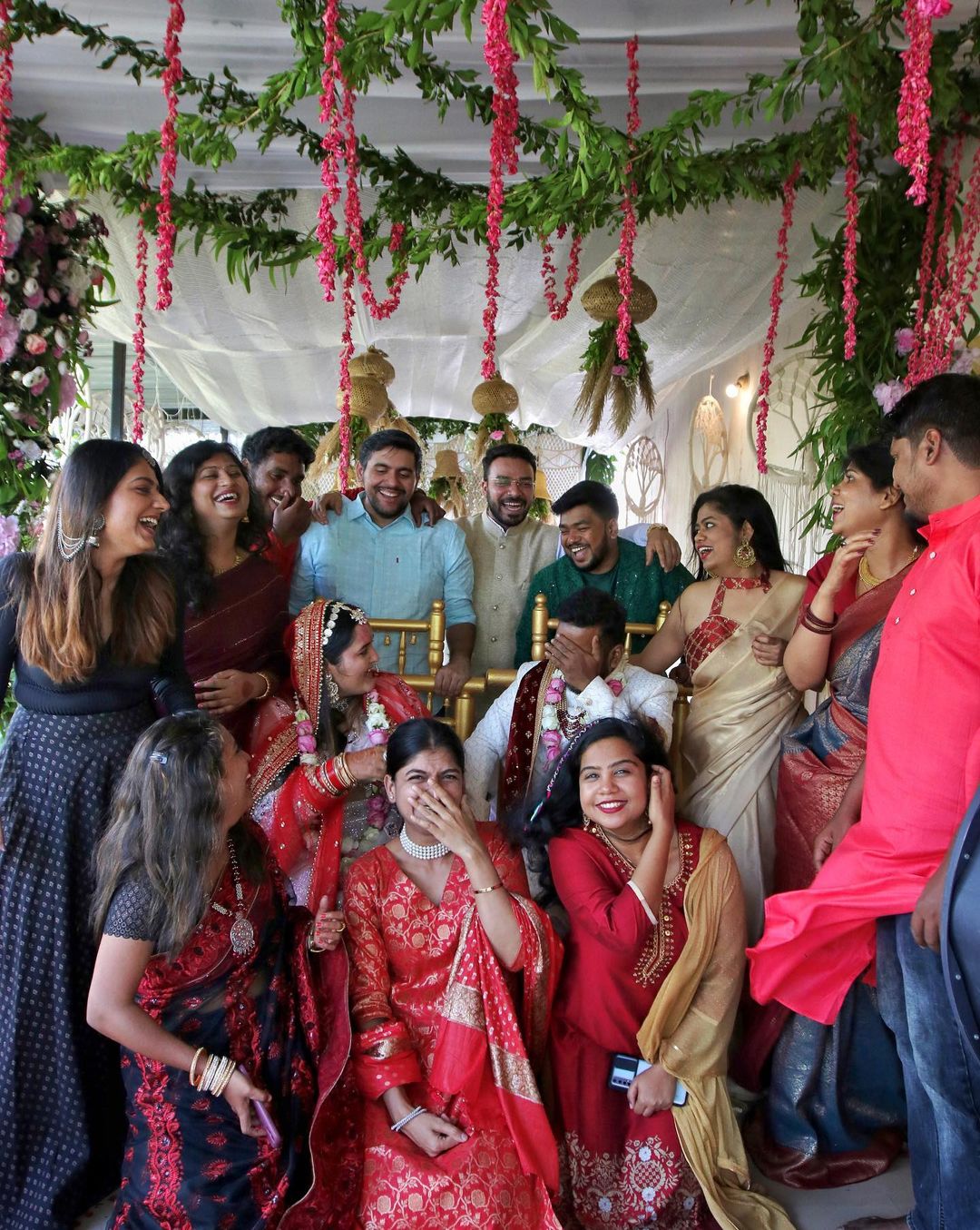
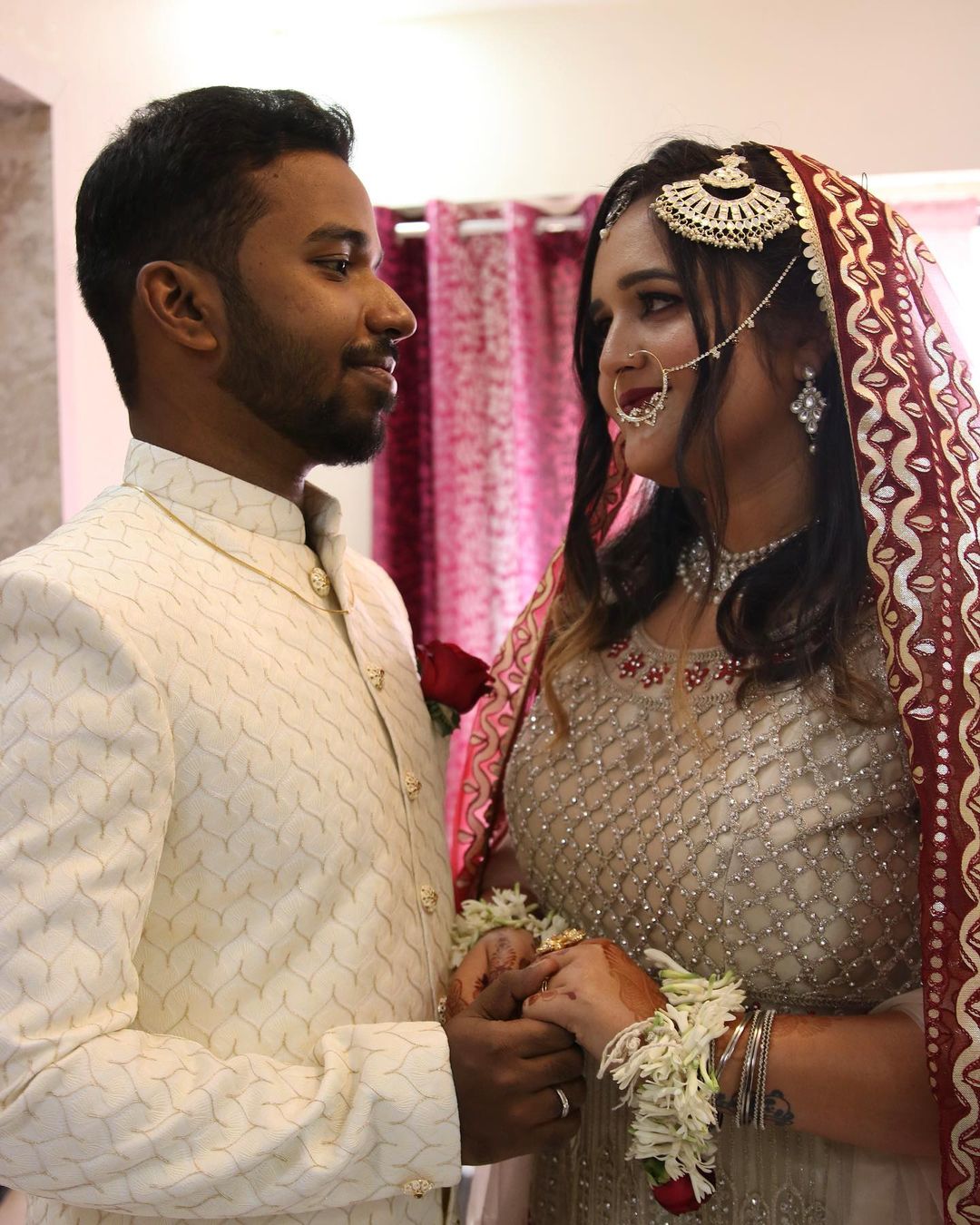
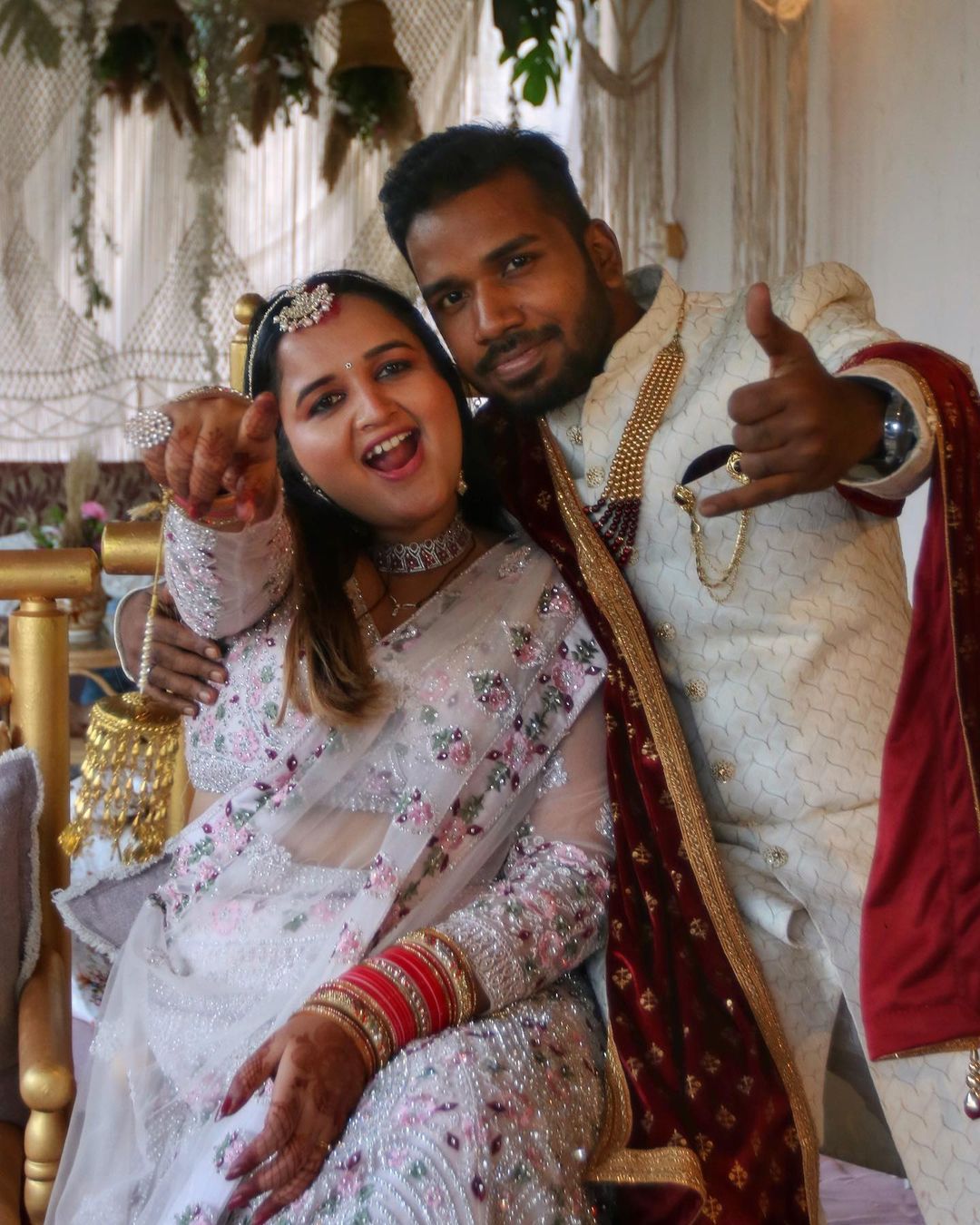
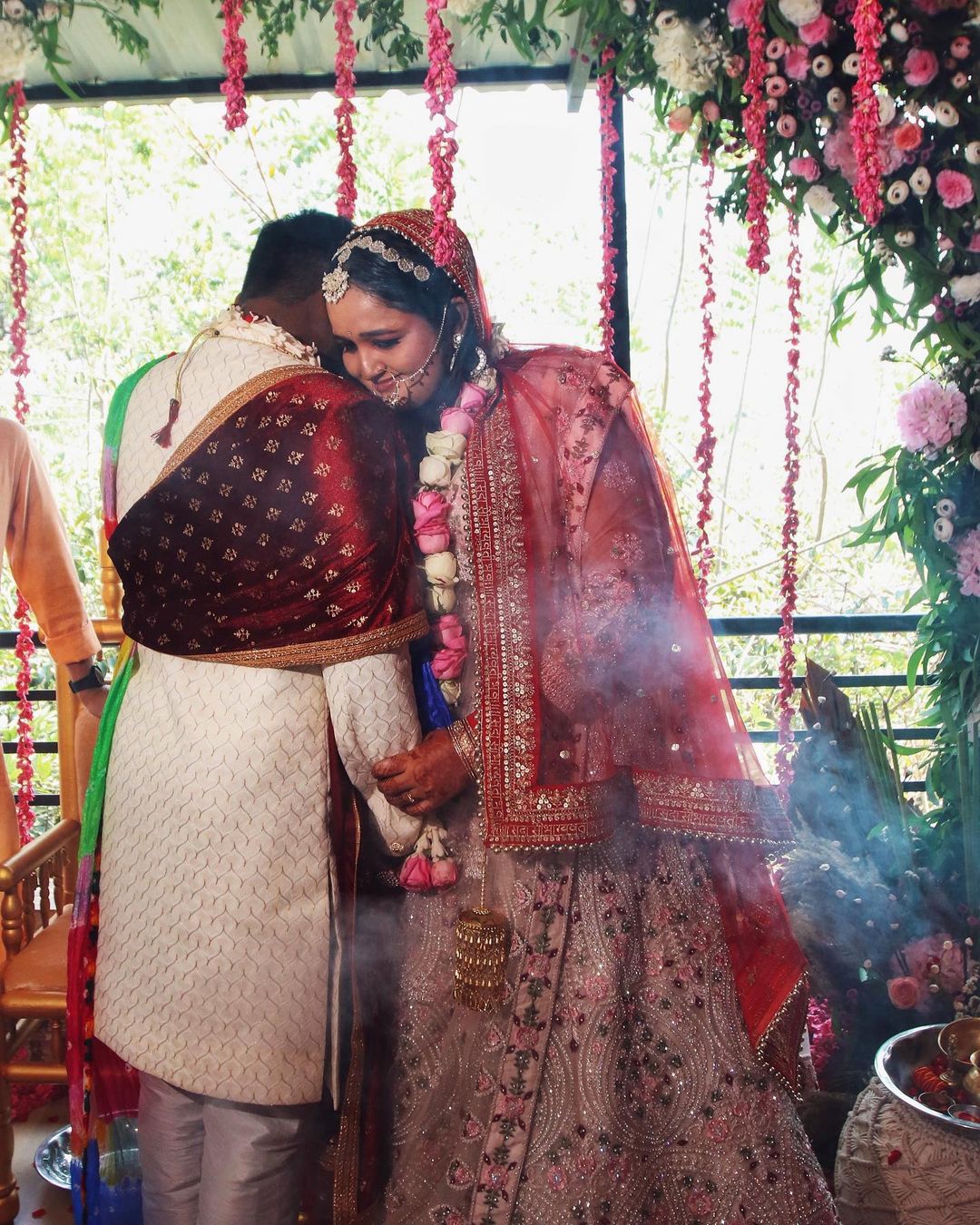
Megha Chowdhary married Nawed, the love of her life, on the balcony of their Goa home in January 2023. She wore a pink embellished lehenga, and he donned a white sherwani. However, no family from Megha’s side attended the wedding, and till date, refuse to accept the union. At the wedding, one of Megha’s friends performed the kanyadaan (a ritual traditionally performed by a father symbolising handing over the daughter to the groom,), while a senior participated in the rituals involving a mother. “It was overwhelming, all my friends were crying. Everybody was crying that day,” Megha recalled.
While their wedding felt like a fairytale, the road to it was riddled with myriad obstacles ranging from the emotional to the legal. Megha, a Hindu from Jamshedpur, Jharkhand, and Nawed, a Muslim from Thane, Mumbai, met in 2018 while pursuing their MBA in Mumbai. Megha’s family couldn’t accept the inter-faith marriage, which eventually compelled her to defy their wishes and choose Nawed.
India boasts of religious diversity, encompassing different faiths like Hinduism, Islam, Christianity, Judaism, Buddhism, Jainism, and more. Historically social hierarchy has favoured marriages among one’s religious communities only.
According to the data from the third round of the National Family Health Survey (2005-06), which surveyed 43,102 married couples, only about 2.1% are inter-religious. A Pew Research Center report from 2021 highlighted that 99% of Hindus, 98% of Muslims, 97% of Sikhs and Buddhists, and 95% of Christians were married to someone of their religion.
- 97% of Sikhs and Buddhists were married to someone from their religious background
- 98% of Muslims were married to someone from their religious background
- 99% of Hindus were married to someone from their religious background
- 95% of Christians were married to someone from their religious background
- 2.1% of couples are inter-religious
Although interfaith marriages are on the rise in India, they often face controversy and familial complexities. HerZindagi spoke to various interfaith couples about bridging the differences, both externally - dealing with family, relatives, and society at large, and internally - managing relational differences as they build their lives together.
Societal and Familial Resistance
In Megha and Nawed’s instance, the couple dated and lived together for a few years before deciding to tie the knot. They’d bonded deeply over their love for treks and adventures. While Nawed’s family supported their decision, Megha couldn’t convince her family.
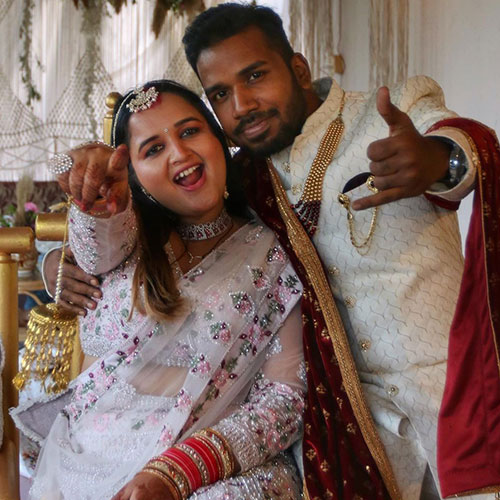
Megha Chowdhary
My parents are very orthodox, they weren’t on board with me marrying a Muslim guy. They were scared there would be a conversion or that my surname would change, but I explained to them that nothing like that would happen. However, my family, including my siblings, weren’t convinced. It was a very difficult and emotional time. There was a lot of emotional blackmailing and manipulation, with people crying and saying all sorts of things. Even today, they don’t accept my marriage.
Meghna &Aamir
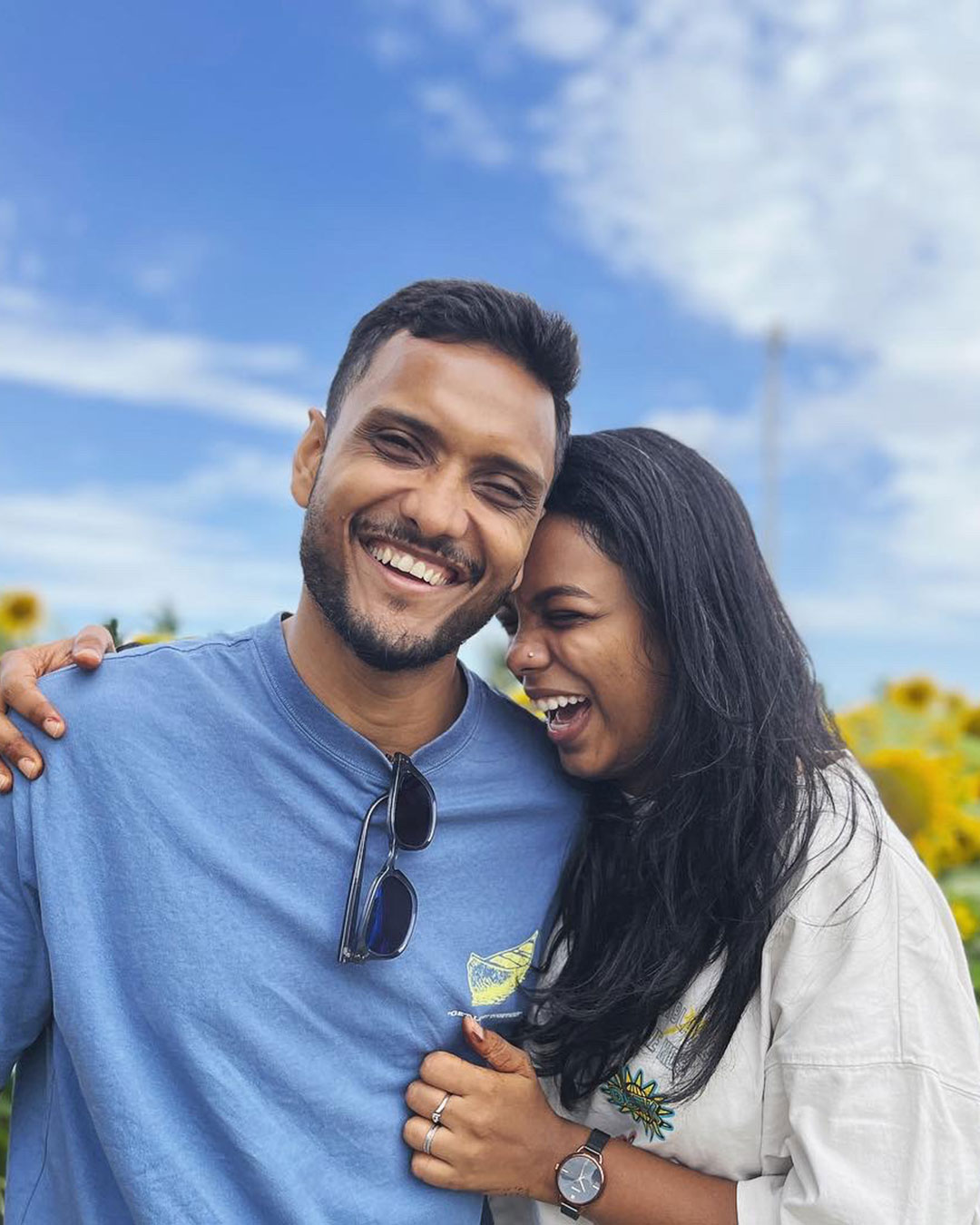
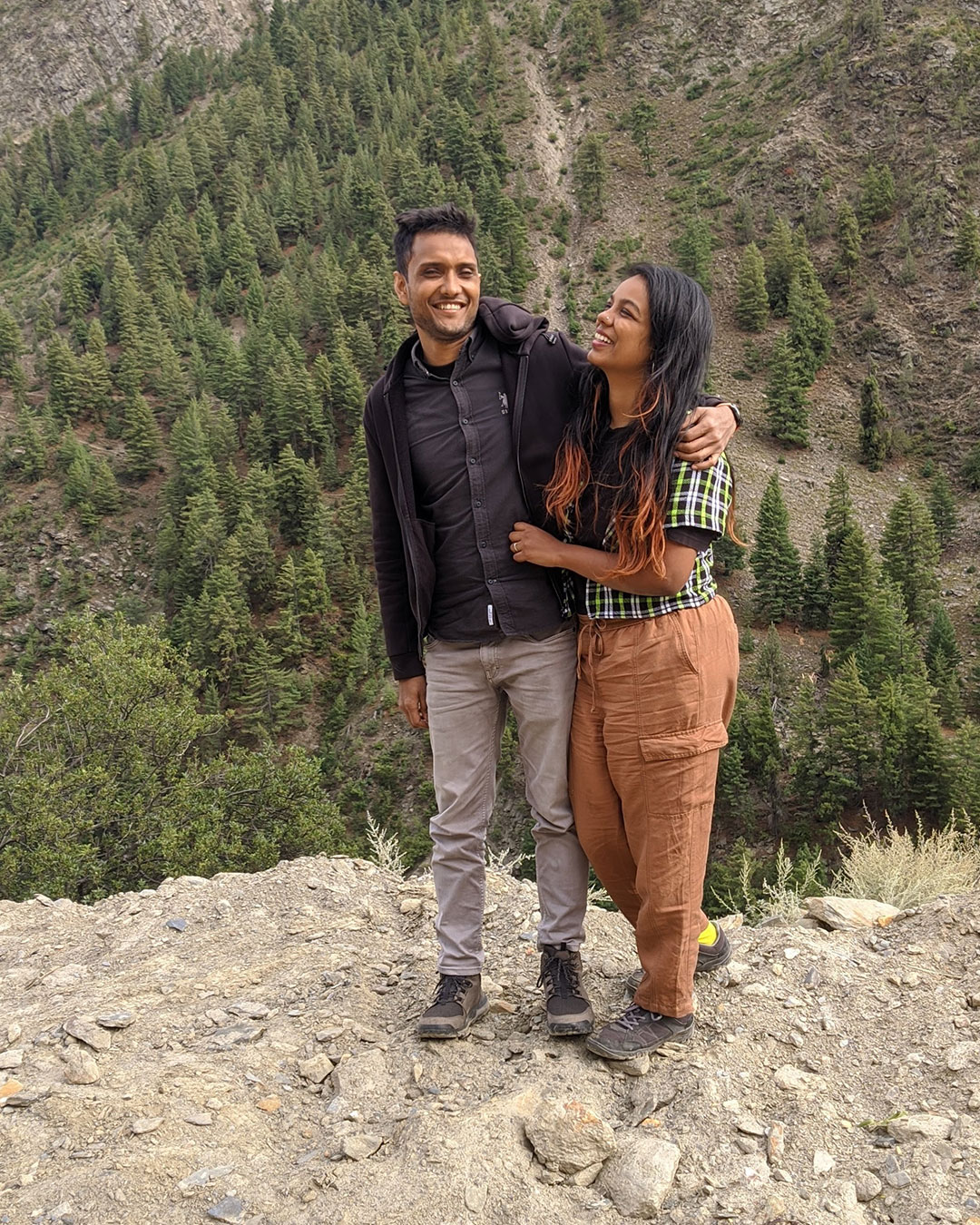
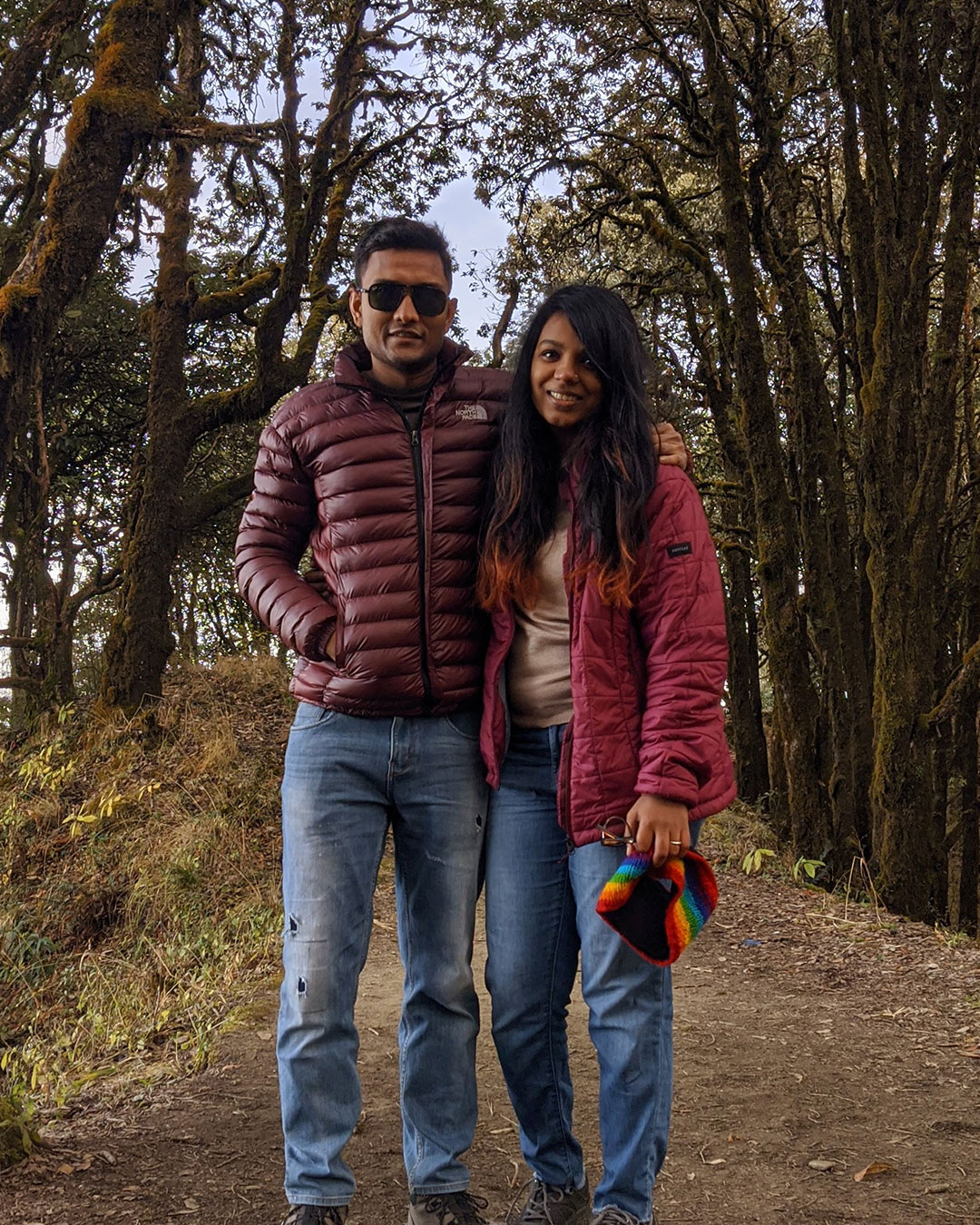
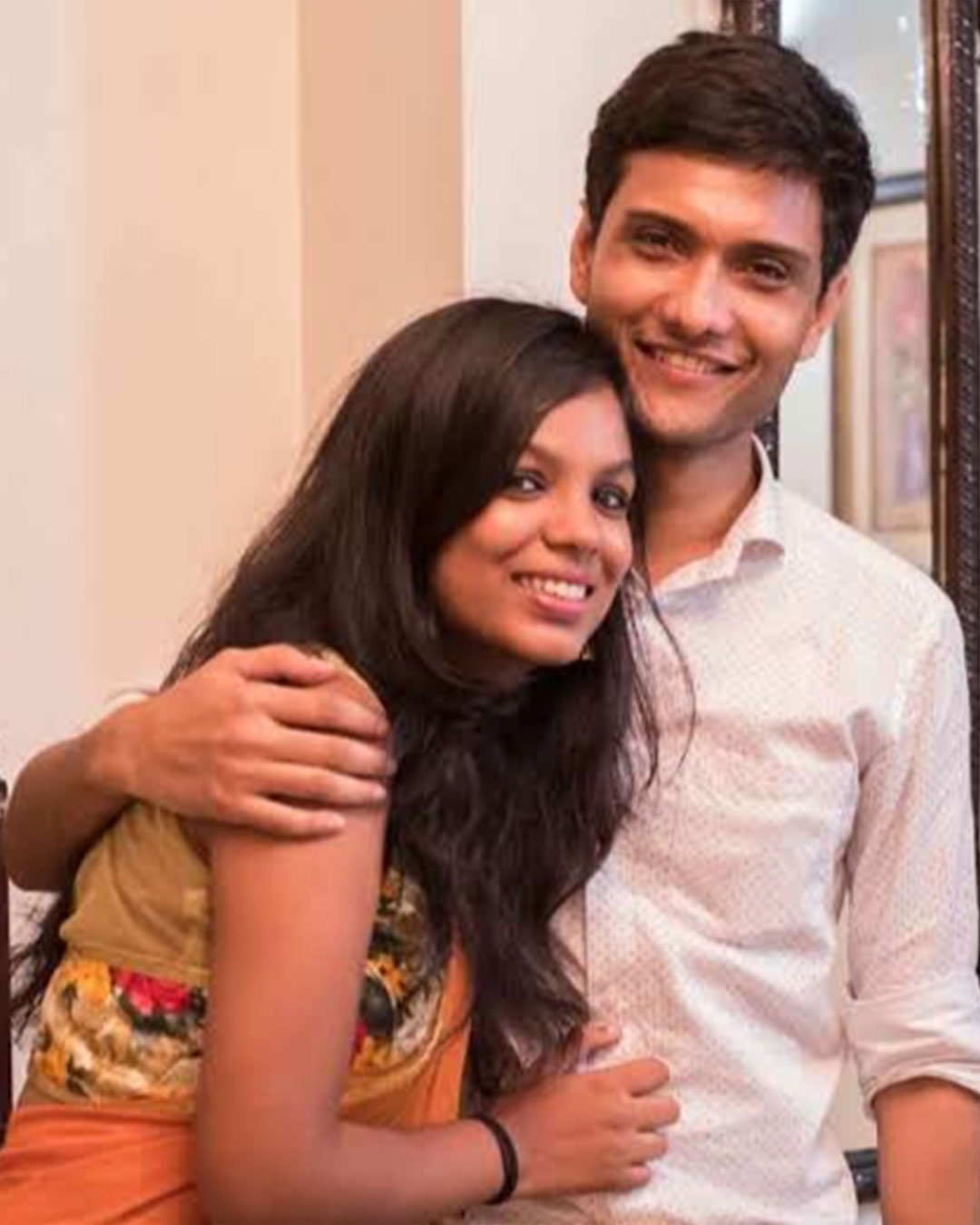
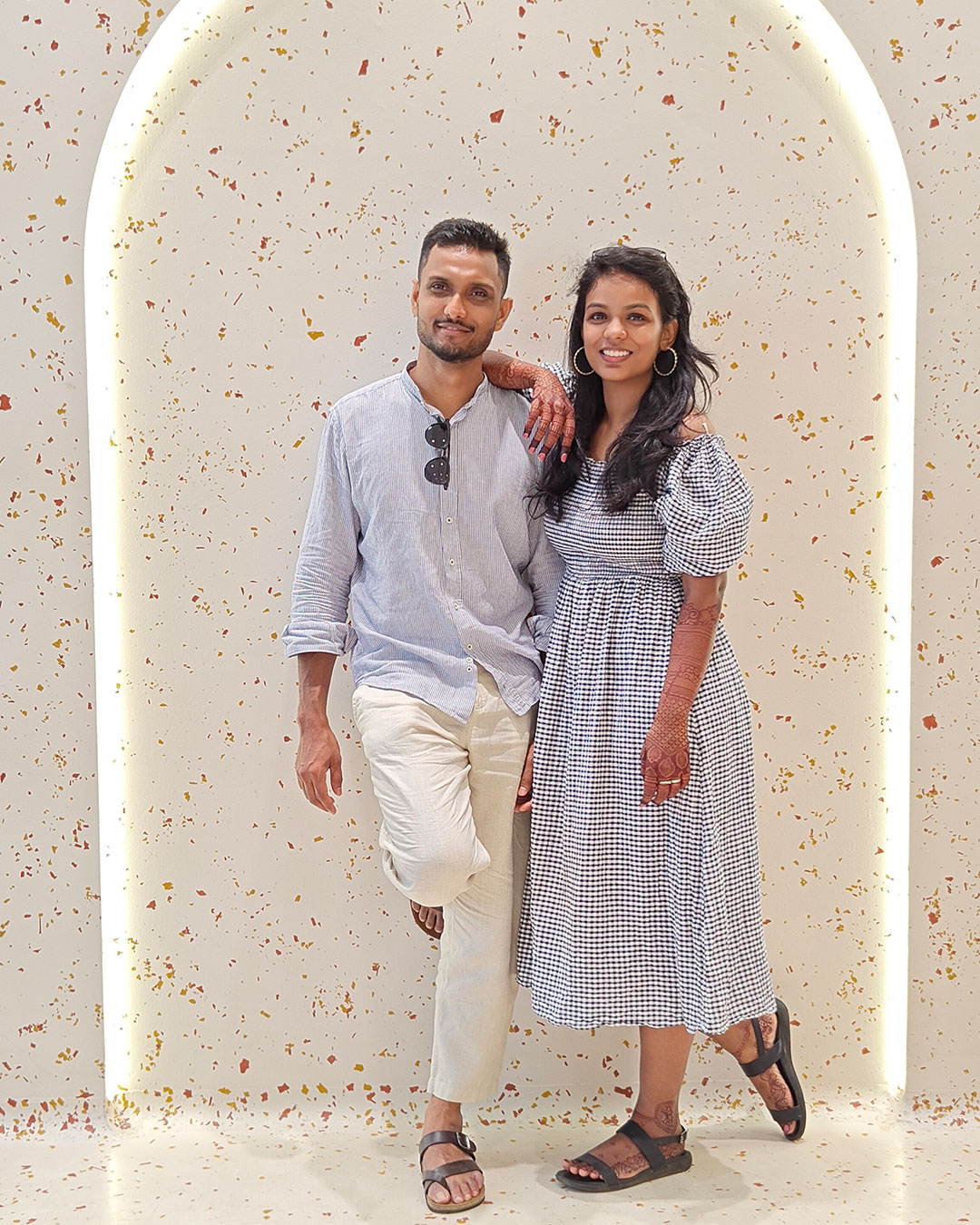
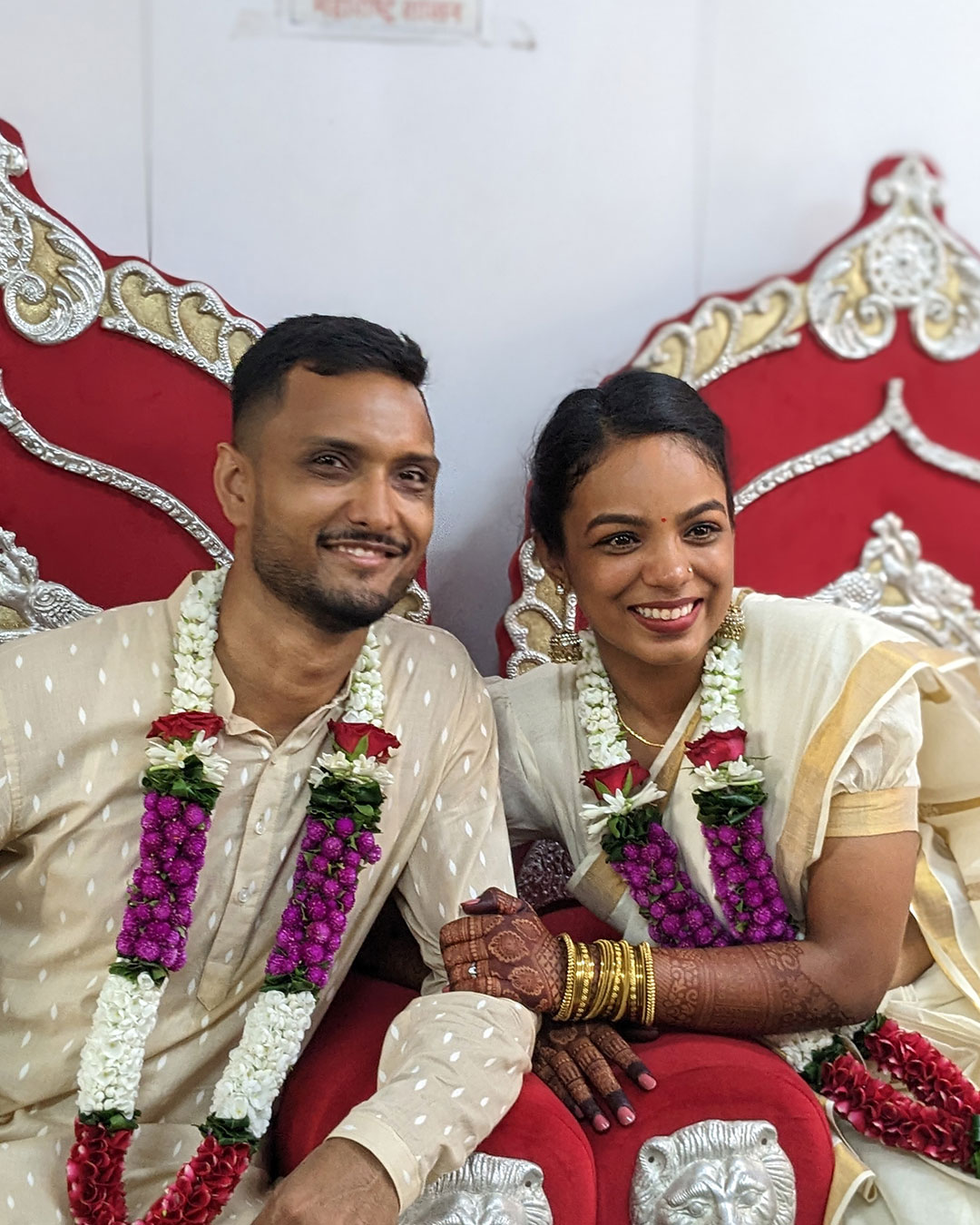
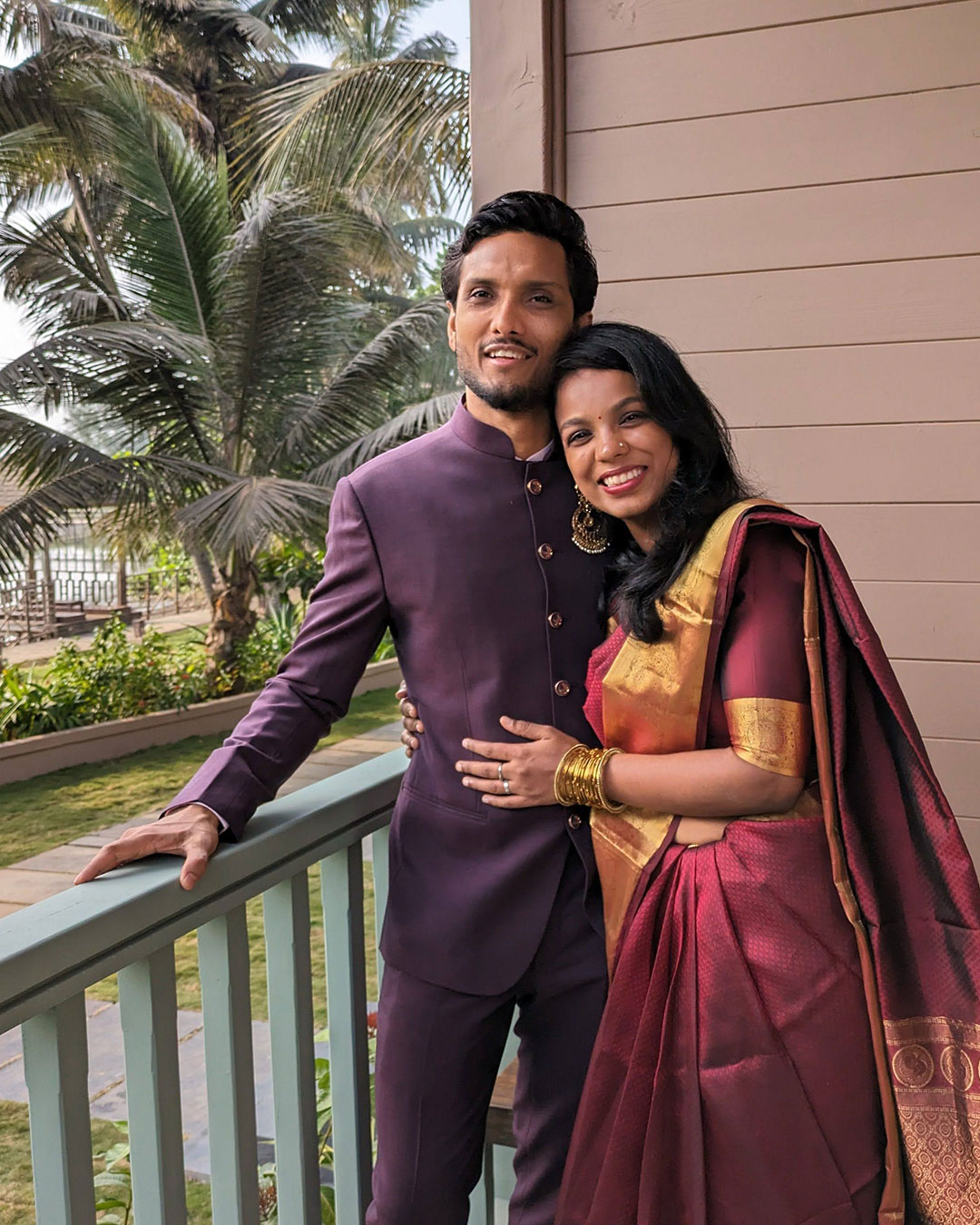
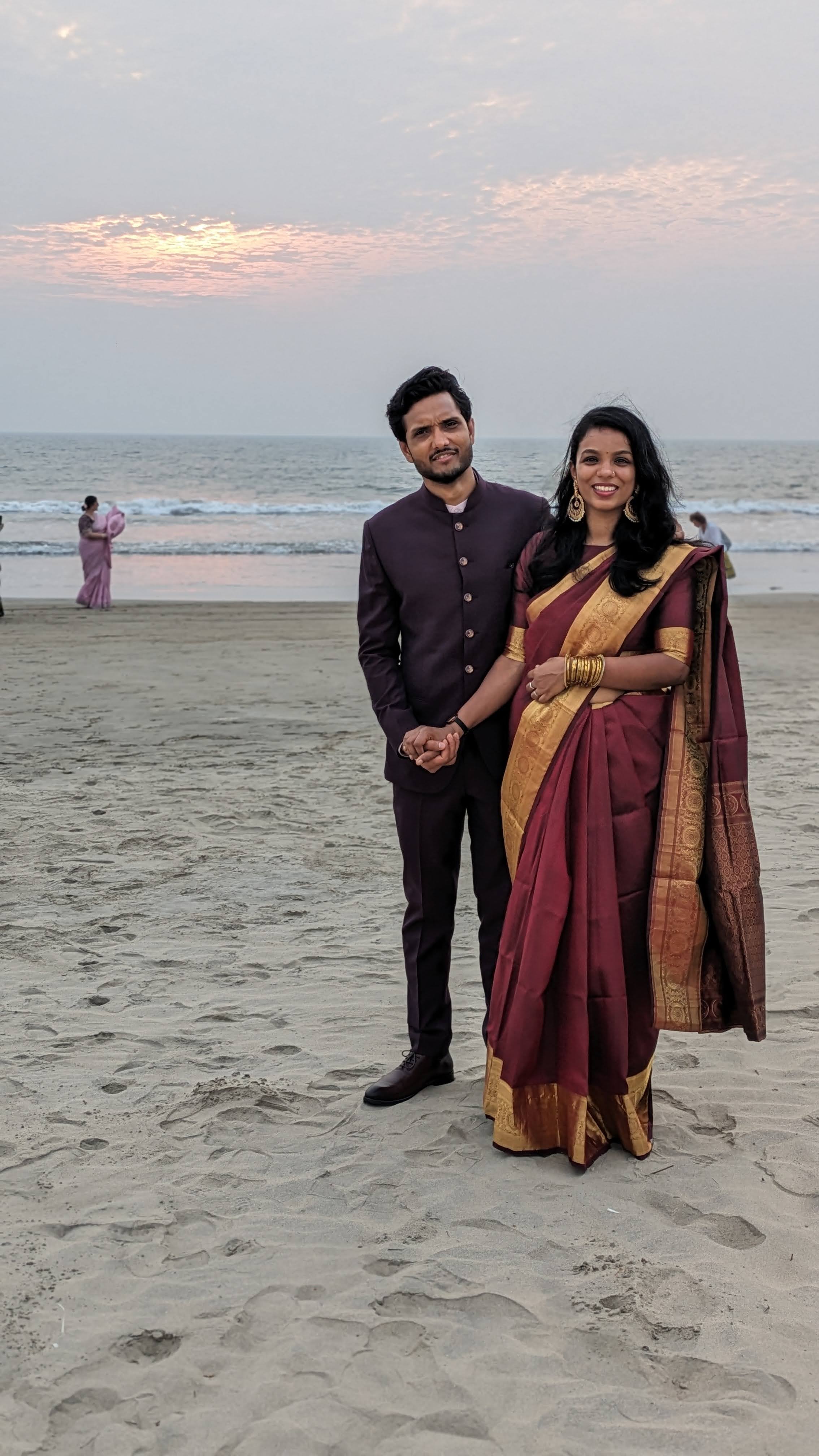
Similarly, Meghna Natarajan Ahmed grew up in a strict Tamil Brahmin household, where Muslims were often stereotyped. She met her Aamir Ahmed through a mutual friend, and they quickly became best friends. “There had been no love marriages in my house, so Hindu-Muslim was out of the question. So, initially, we subconsciously tried not to think in that direction. But as fate would have it, we ended up dating, in 2010,” Meghna said.
Meghna recalls that the journey to getting married finally in 2023 witnessed too many struggles.
I'm religiously agnostic, but that's not the case for our families. The first step was to come to terms with the fact that we were in love. We even tried to break up in the first six months, because we knew it would be hard. Both families were completely against it. His family wanted a conversion, and my family opposed it. It took years and years of convincing.
The families eventually came around in 2022, but the journey was not smooth. A wedding was planned for that year, but it had to be cancelled due to ongoing family issues. “Invitations had already been sent out, and for a while, it felt like there was no light at the end of the tunnel. It seemed like it might never happen because the disagreements between families seemed beyond repair,” she recalled.

Meghna Natarajan Ahmed
In June 2023, they managed to have a low-key court marriage with a limited number of guests. “It was mostly friends and a few family members. We just had a court marriage and went for lunch afterwards. There were no ceremonies or celebrations,” she added.

Moumita &Zayyan
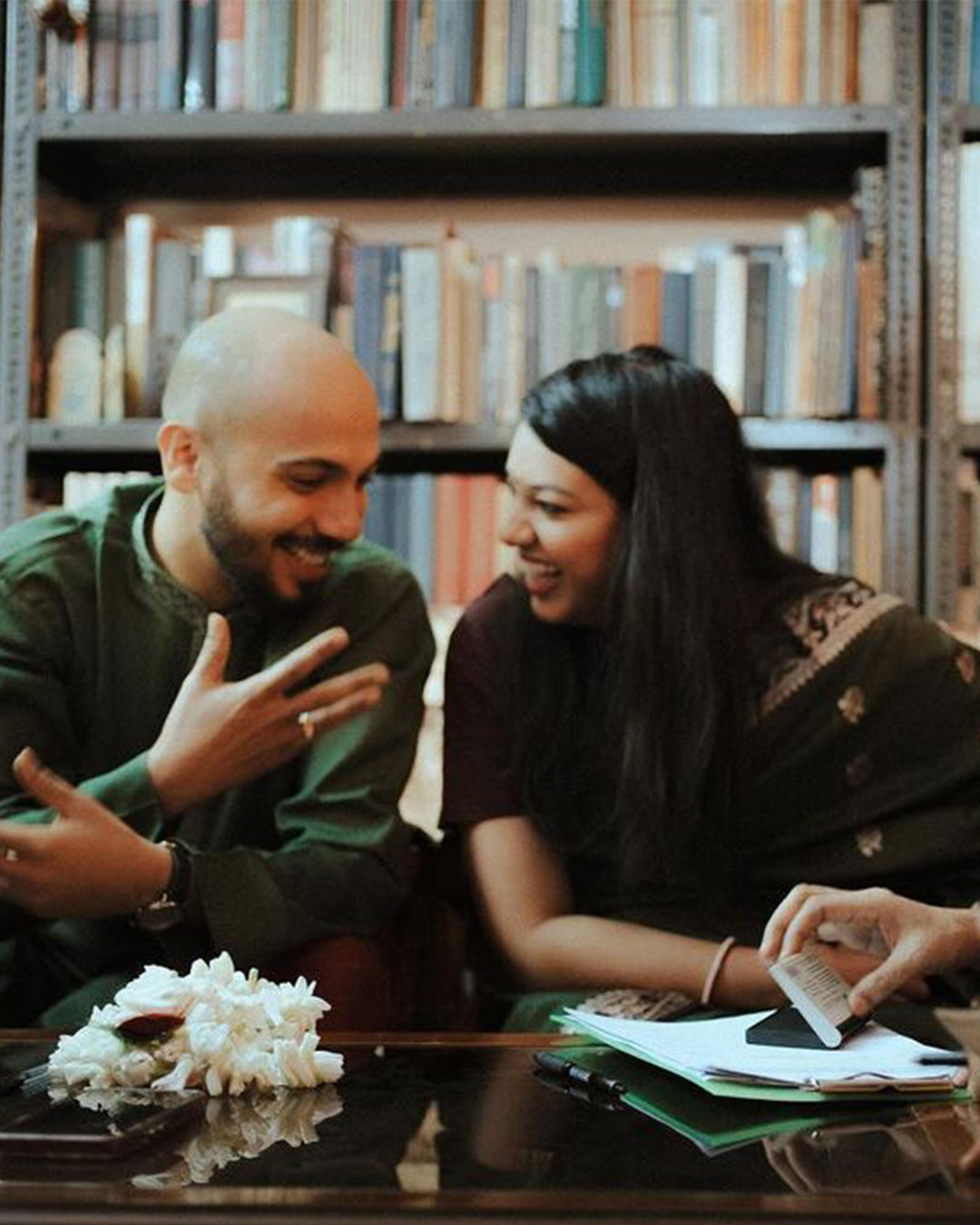
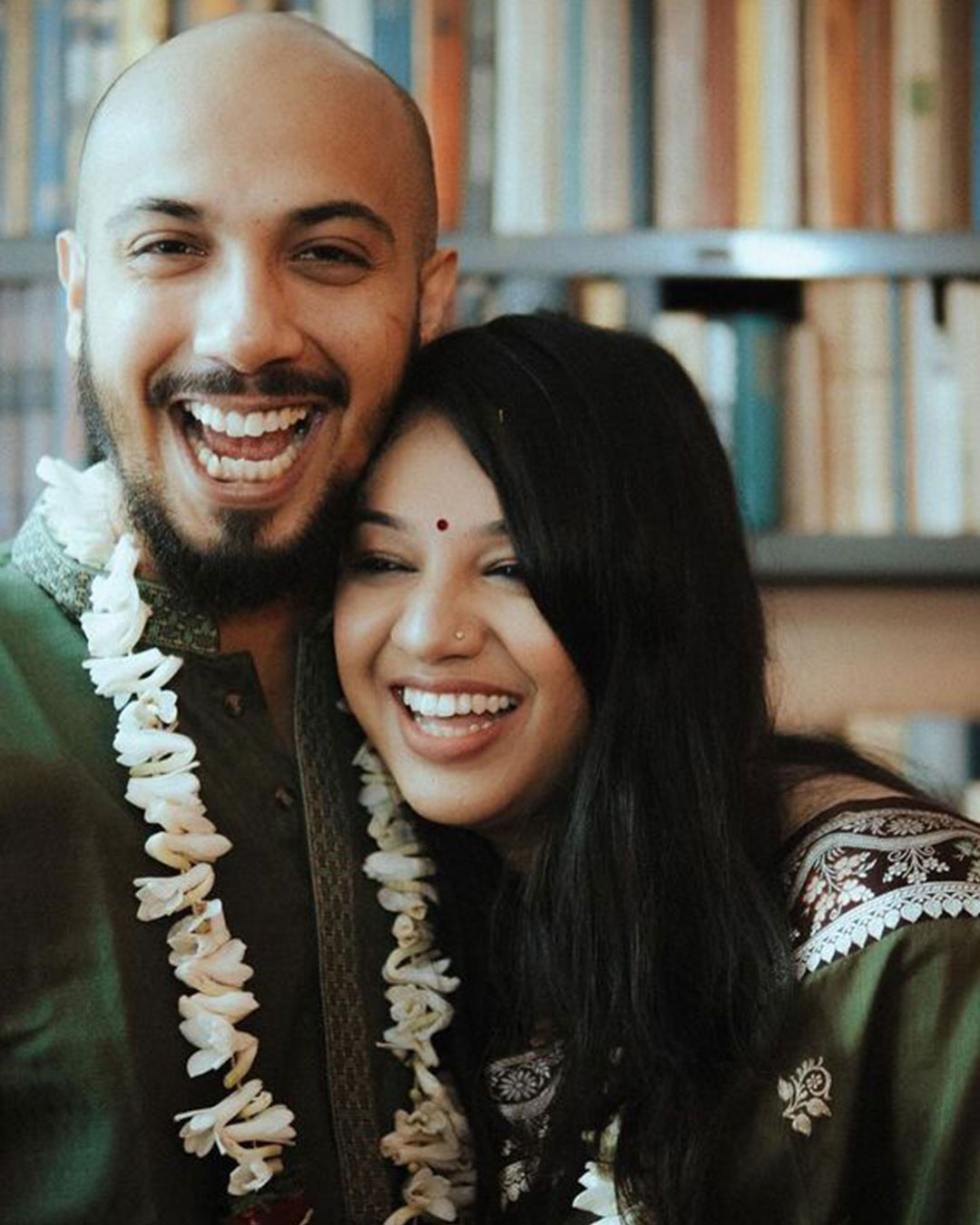
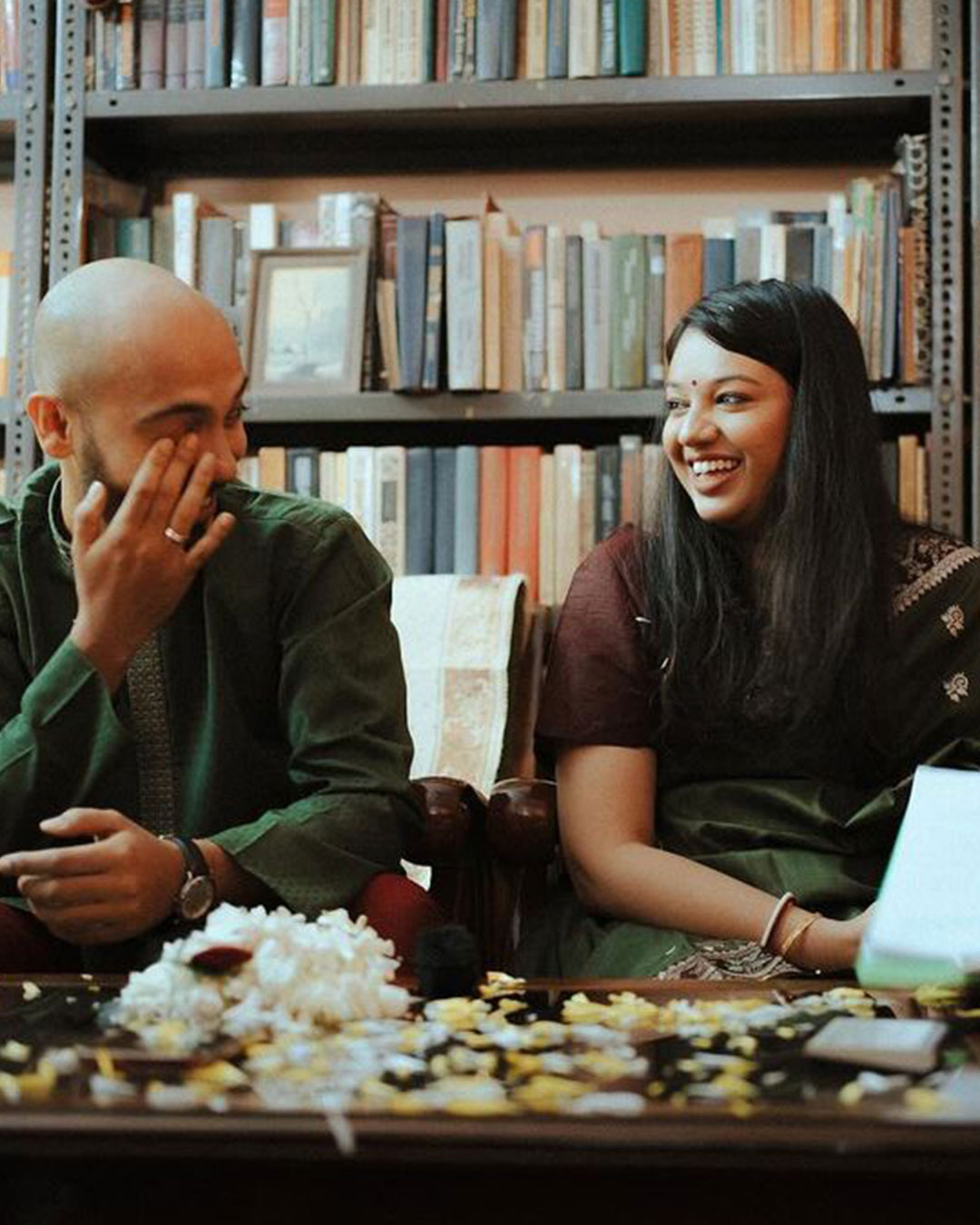
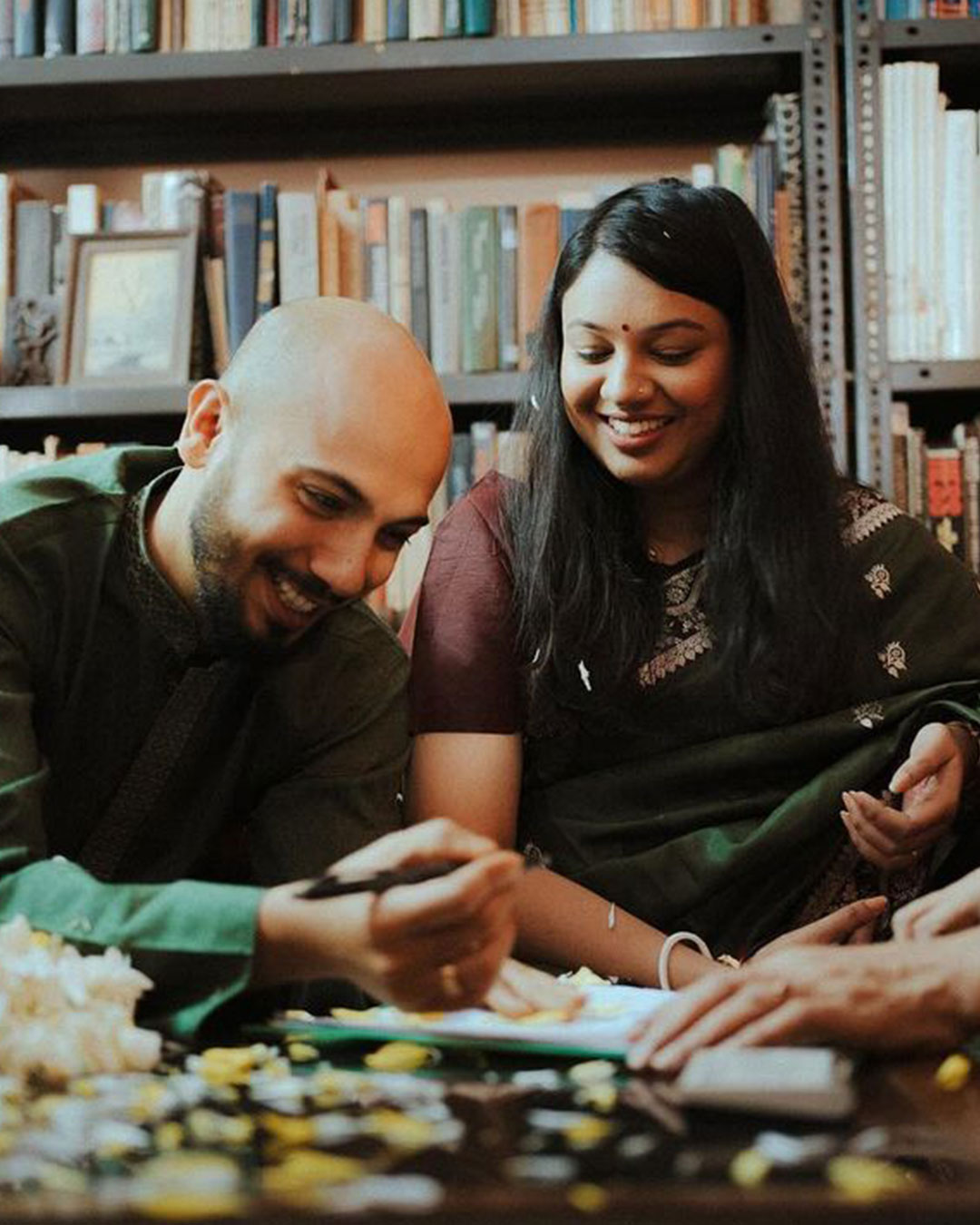
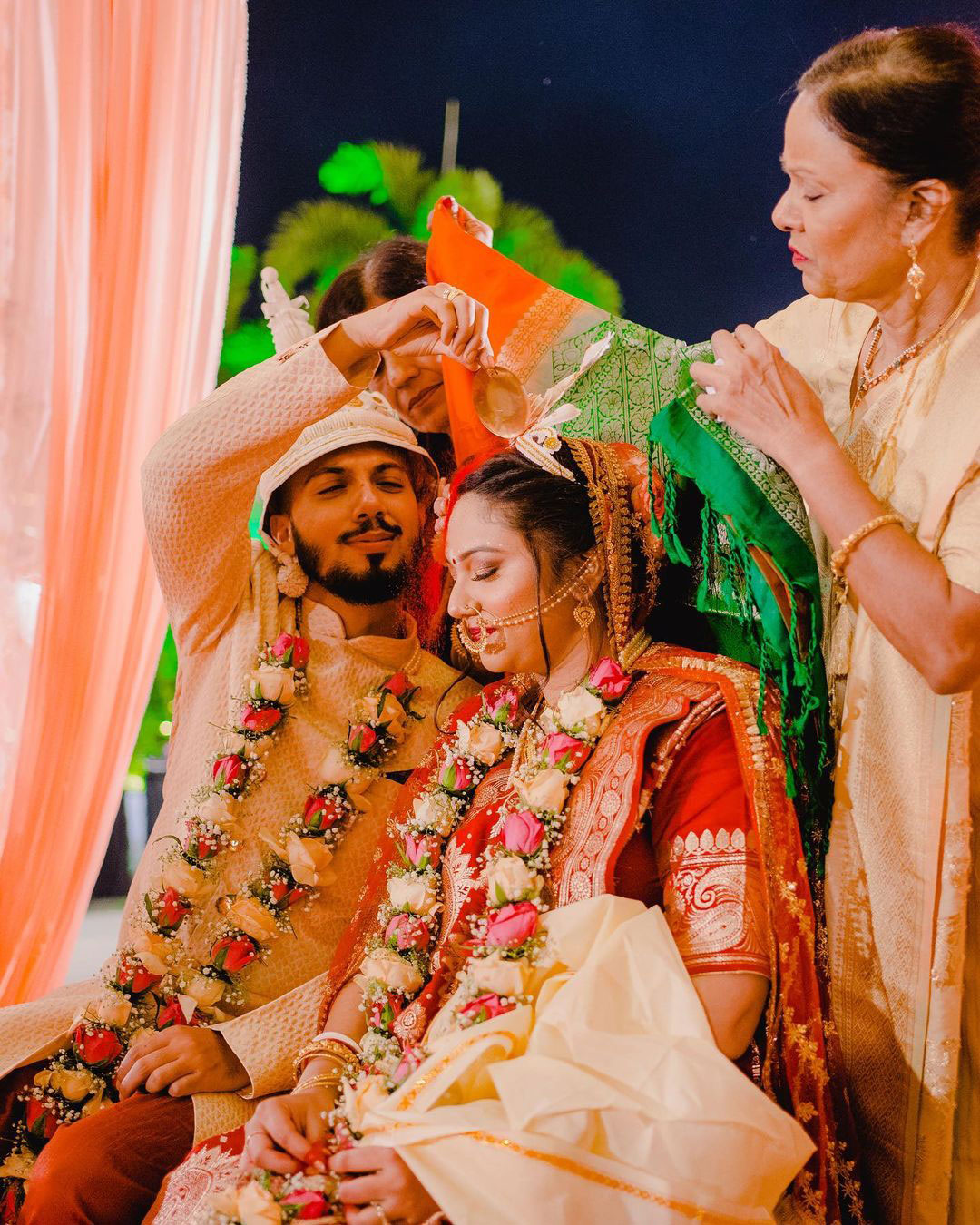
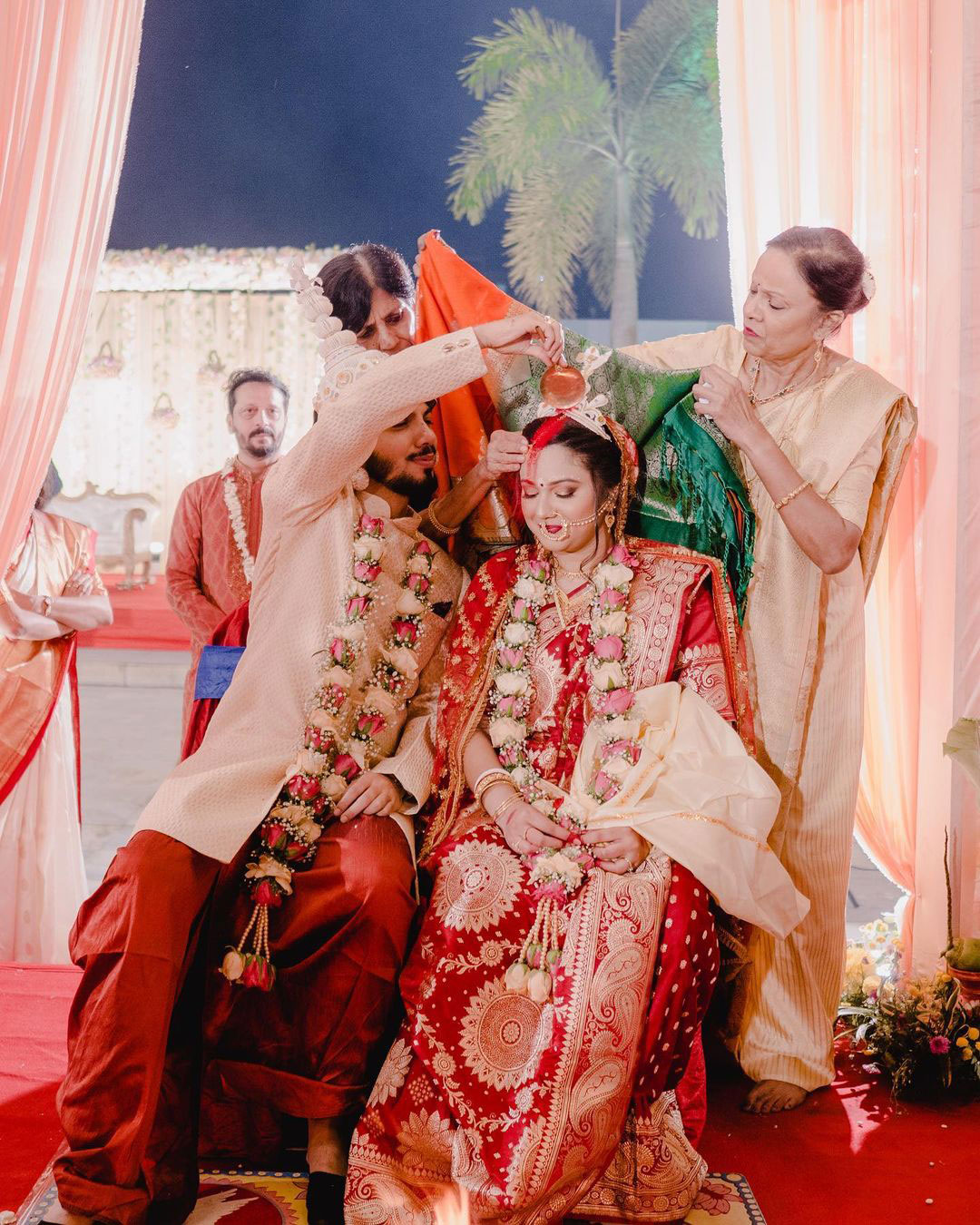
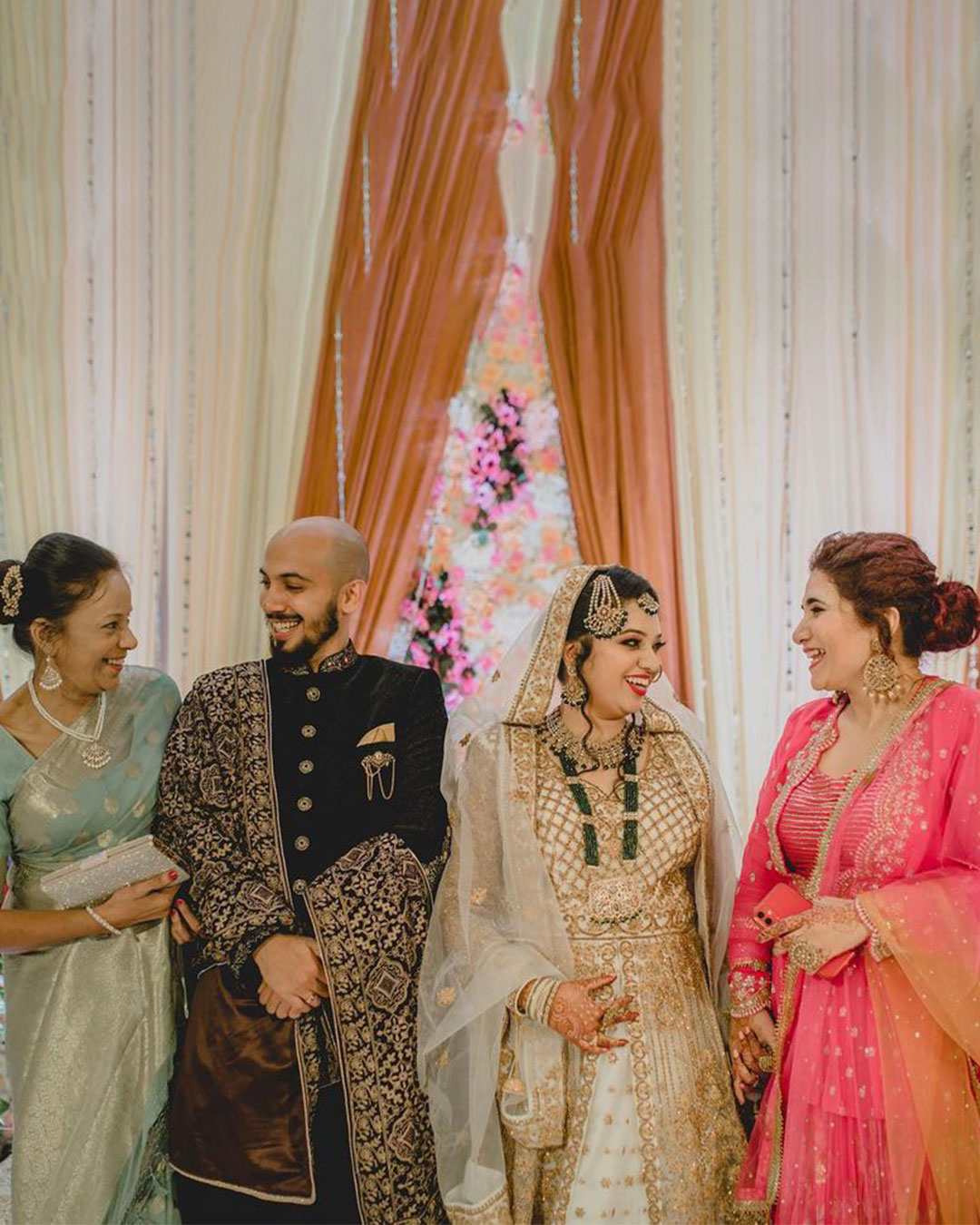
Moumita Majumdar, a public relations professional, first met her now husband Zayyan in 2018 through a shared workplace. It was Zayyan’s dancing skills at a company offsite that initially caught Moumita’s attention. At that time, they lived in different cities, but Zayyan moved to Mumbai and the two started dating.
Until they decided to get married, religion was not a significant issue for them. When they approached their parents, Zayyan’s parents were supportive, though there was some resistance from his extended relatives. However, Moumita’s mother took more convincing.
My mom was not very happy that he was from a different religion and she explained it to me saying, ‘I don’t care about religion per se, but they’re opposites to us in everything they do and the way they live. I feel like it’ll be difficult for you to adjust.’ I explained to her that neither of us was fanatical about religion.
She highlighted that for any couple looking to convince their parents, patience is key.
It took a couple of years, for her to finally meet him. But now, my mom has become one of the fiercest protectors of him.
Moumita pointed out that preconceived notions are often the root of resistance in societies and from families towards inter-faith couples.
I feel like if the family could just meet the partner, they’d see that they’re not that different after all. We’re all human.
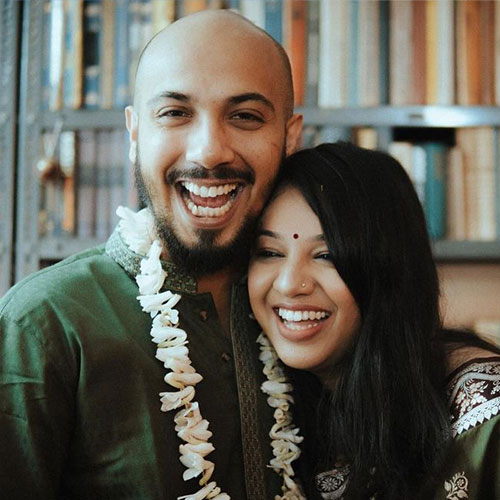
Moumita Majumdar
The challenges faced by interfaith couples can be myriad. Asif Iqbal, co-founder of Dhanak of Humanity, an NGO that has helped over six thousand individuals and inter-faith couples in their journey of being together. “These challenges include loss of habitat, job, education, house arrest, forced marriage, fake case of theft, religious conversion, physical and emotional trauma, etc. Confiscation of academic certificates, and control over the OTP linked to the Aadhar card of daughters, hampering any future initiatives for jobs or education. Honour killing is the extreme,” he summed up, from his experience.

sonakshi &zaheer
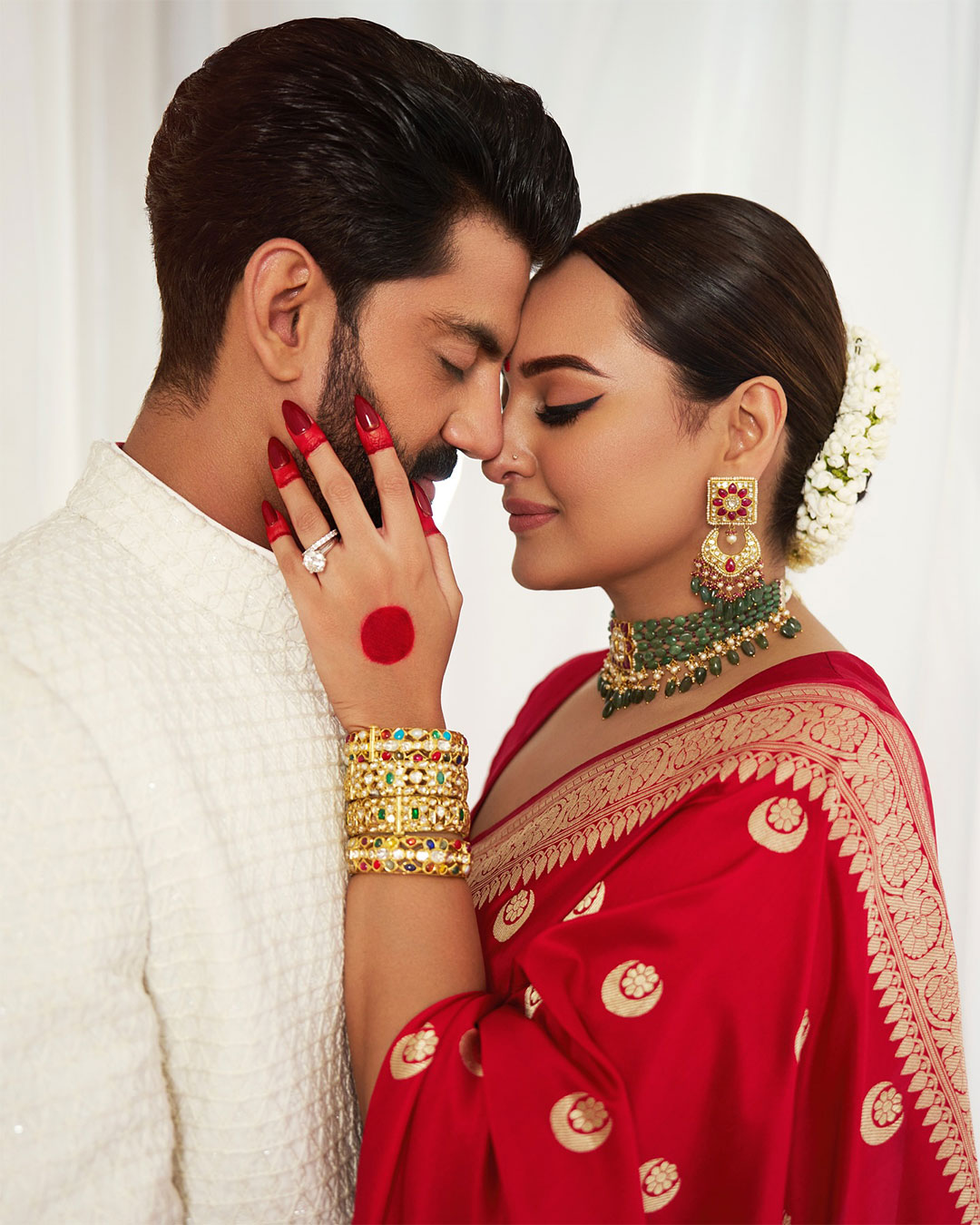
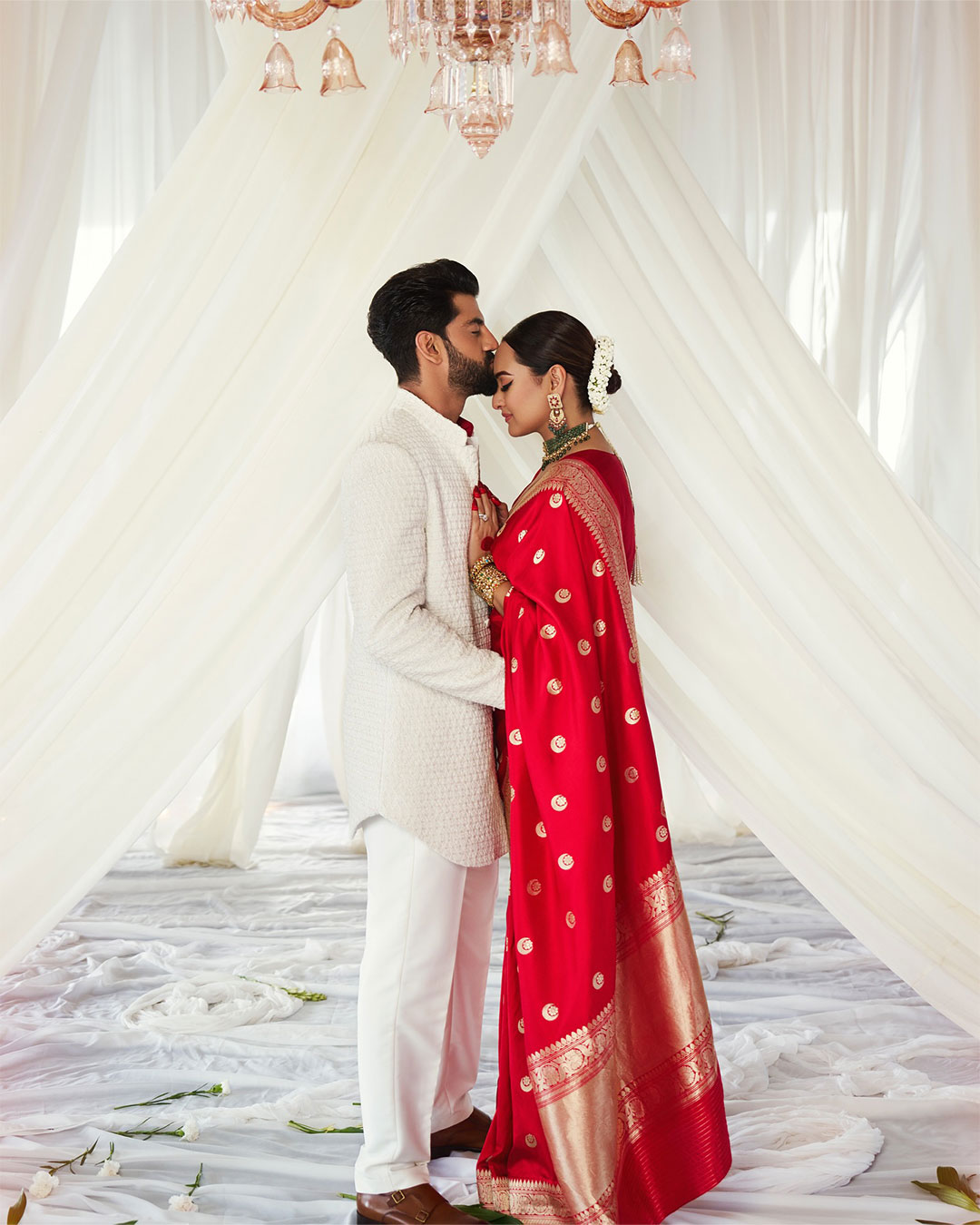
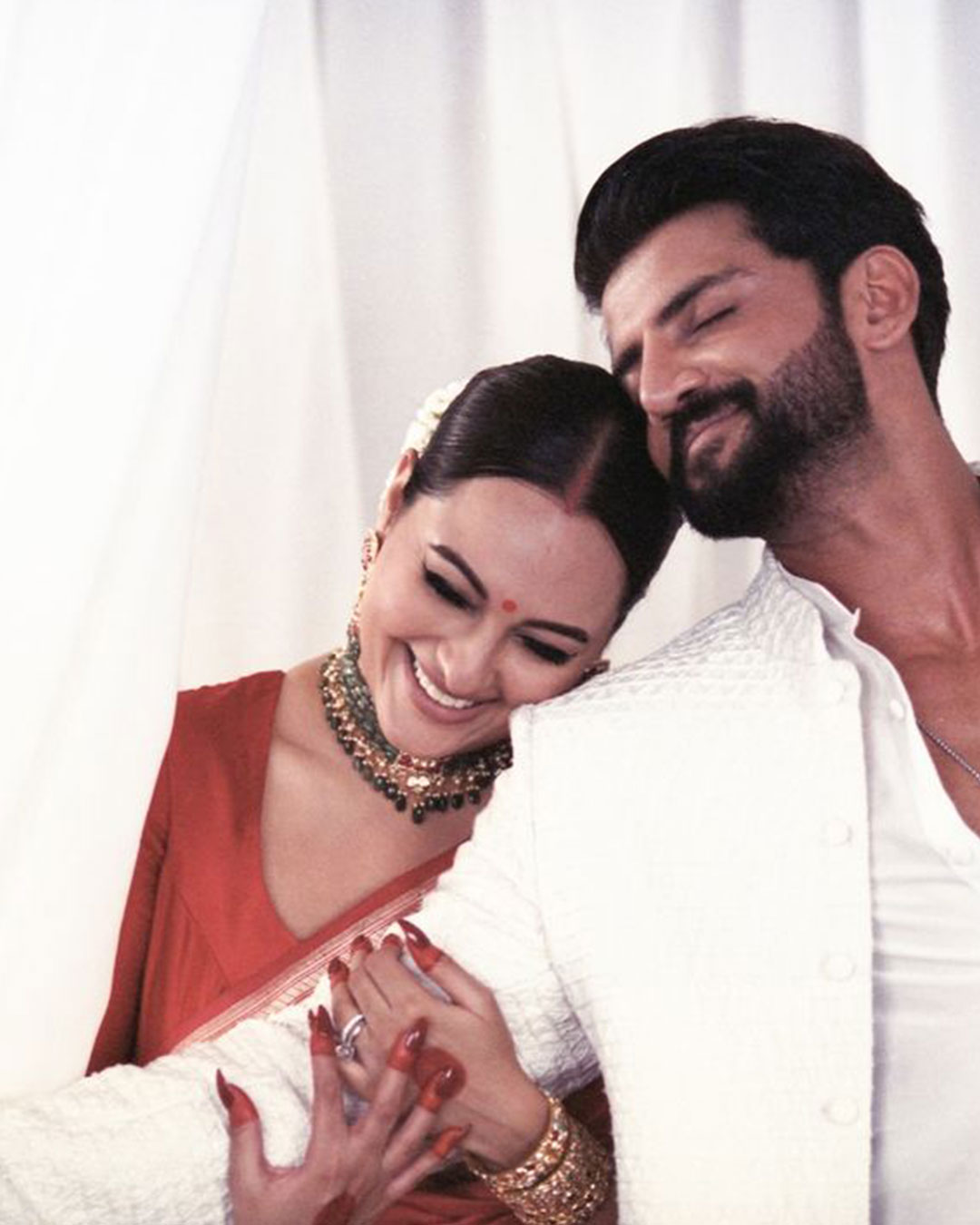
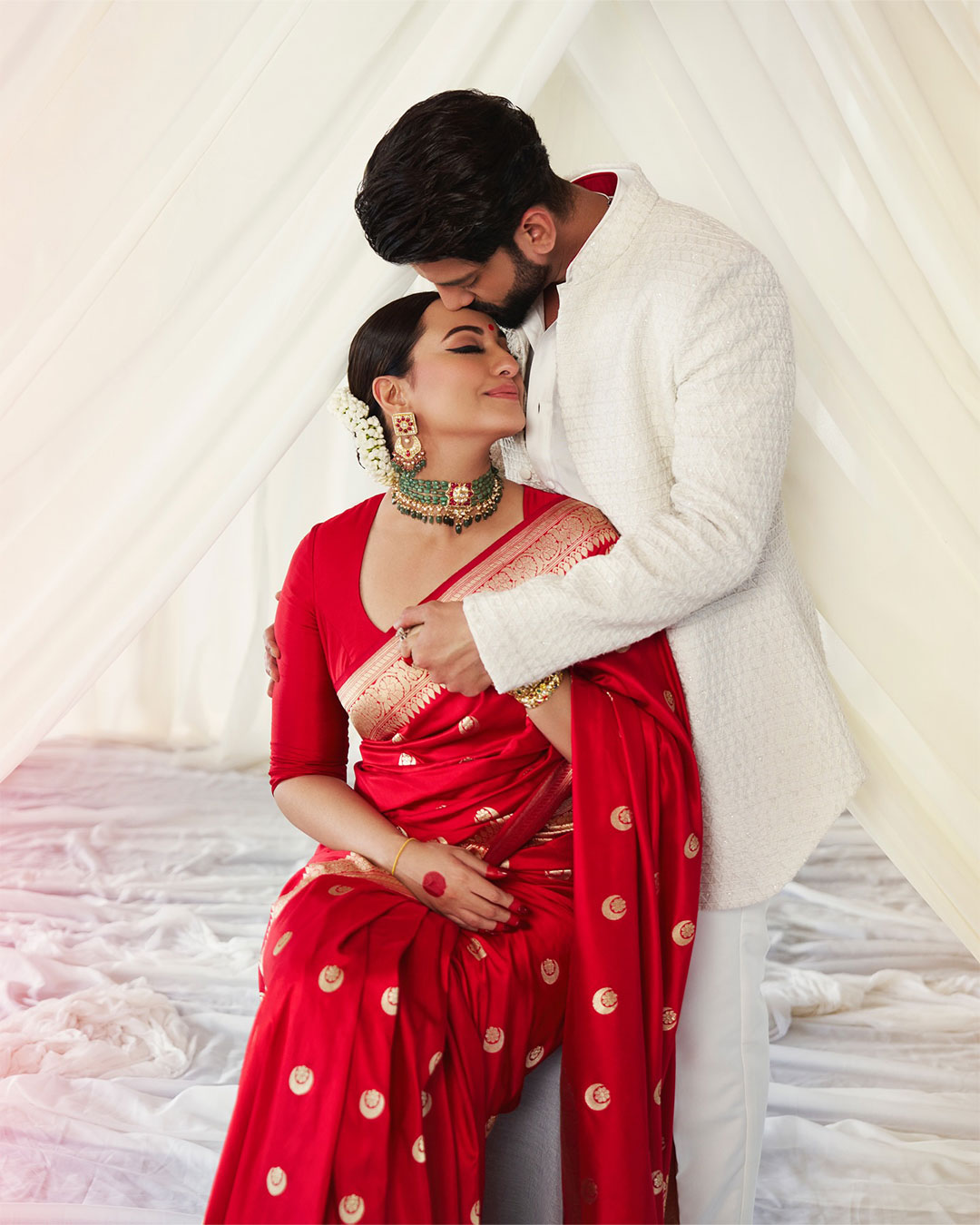
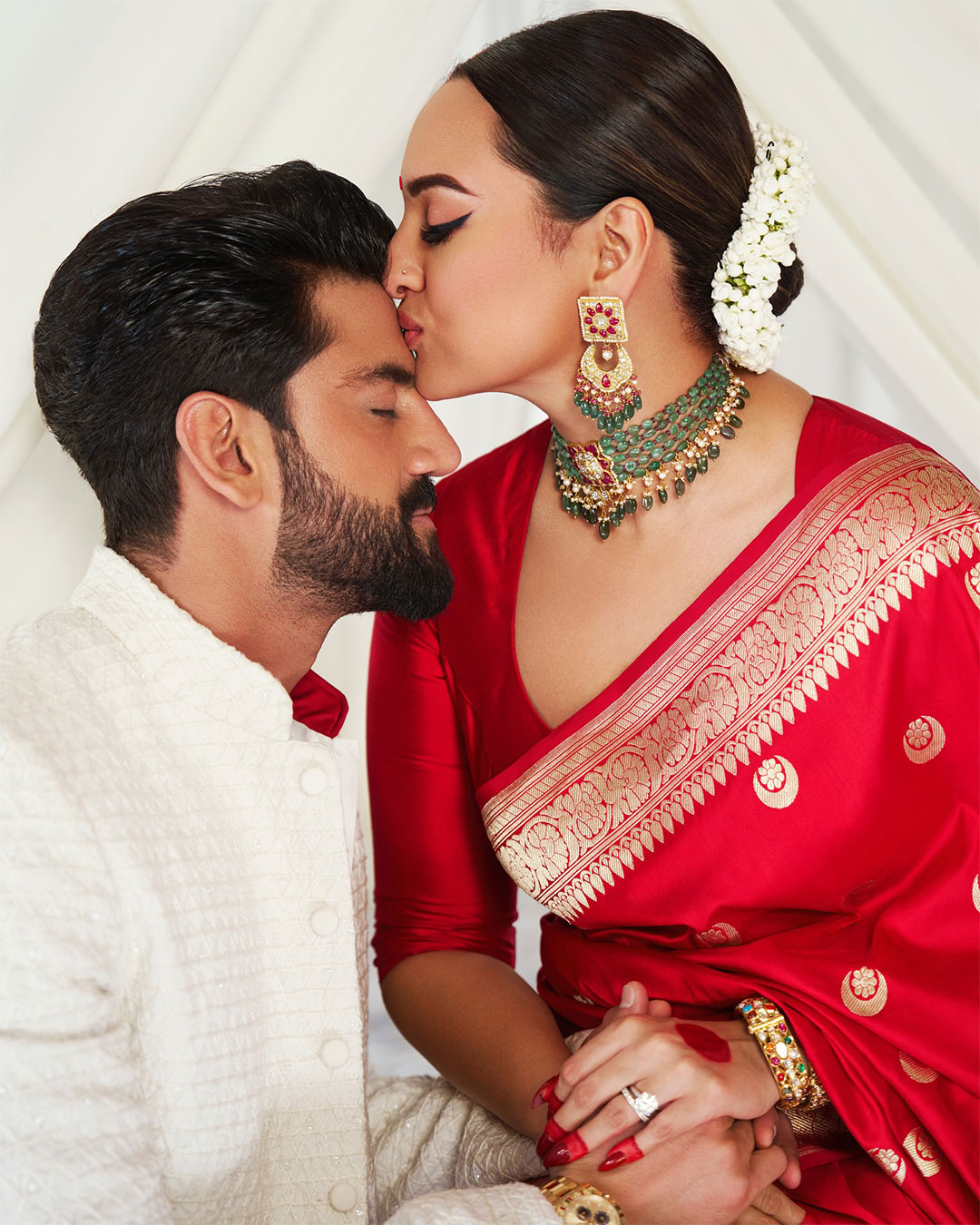
The Public Outrage and Trolling On Social Media
Amidst interfaith marriages, Hindu-Muslim alliances have been the most contentious.
Actor Sonakshi Sinha recently tied the knot with her long-term partner Zaheer Iqbal, which led to rampant trolling and backlash on social media. The criticism ranged from including terms like ‘love jihad’ (an Islamophobic term used to villainise Muslim-Hindu unions) to users expressing their intent to unfollow Sonakshi for her choices. In response, the celebrity couple disabled the comments on all their wedding-related Instagram posts to avoid further negativity.
In a similar incident, a Tanishq jewellery advertisement featuring an interfaith couple sparked such intense outrage in 2020 that the brand, owned by one of India's largest conglomerates, withdrew the ad. The company issued a statement explaining that the decision was made "keeping in mind the hurt sentiments and the well-being of our employees, partners, and store staff."
Megha often faces backlash on her posts, whenever her love story is highlighted. “People comment things like ‘your body will be found in a fridge’ and such stuff. Some even call me a ‘traitor Hindu’,” she said. The first comment refers to a much-hyped case, where a Muslim man murdered his girlfriend and hid her body parts in a refrigerator.
The situation is further complicated by legal measures like the Prohibition of Unlawful Conversion of Religion ordinance, also known as the ‘love jihad’ law, which was passed in Uttar Pradesh in November 2020. This law was made stricter on July 30, 2024, with harsher punishments. Aimed at prohibiting forcible religious conversions under the guise of marriage, experts have argued that it can be misused to unfairly target men from religious minorities.
She added, “The current scenario of the country makes it worse. Nobody talks about infrastructure, development, unemployment, and jobs, and everyone seems to only talk about religion. If there had been more support politically, things would have been completely different.”
Meghna, who got married in 2023, added that there is too much typecasting when it comes to Muslims. “There is too much polarisation, there’s so much politics at play, and there are too many preconceived notions,” she said.
Getting Married: Ceremonies, Lawyers and the SMA
For some interfaith couples, their wedding ranges from being an elaborate celebration that blends of cultures and rituals, while others opt for intimate court weddings.
Sonam Gogia and Sukrit Gupta met in Manali through a common friend. Sukrit had been living in Manali for nearly a decade, and Sonam relocated after the Covid-19 pandemic in 2021. They bonded over daily hikes and workouts, and soon, Sukrit came up with a surprise proposal to ask Sonam to marry him.
Since I am a rock climber and an adventure filmmaker, after a lot of deliberation I came up with a surprise plan to propose to Sonam atop a cliff, which we could approach with a 150ft climb. The cliff has a waterfall running on the side with three cascades. Captive atop a cliff she had no option but to say yes.
Sukrit explained, that he is a Hindu, while Sonam is a Christian with Sikh ancestry and a few Muslim relatives, as her paternal family was based in Bahrain until about 15 years ago.
Next came the question of what rituals to follow in the wedding. “Since both families couldn’t agree on which religious ceremony to undertake for the marriage, my father suggested we undertake all of them from the four prominent religions of India, to settle the matter. He also said it’ll put out a message of social unity and inclusivity to all,” Sukrit said.
In Jun 2024, Sukrit and Sonam got married over three days of religious ceremonies representing - Hindu, Muslim, Sikh, and Christian traditions. The wedding took place near this village in Dehradun and was attended by around 250-300 guests.
Sonam &Sukrit
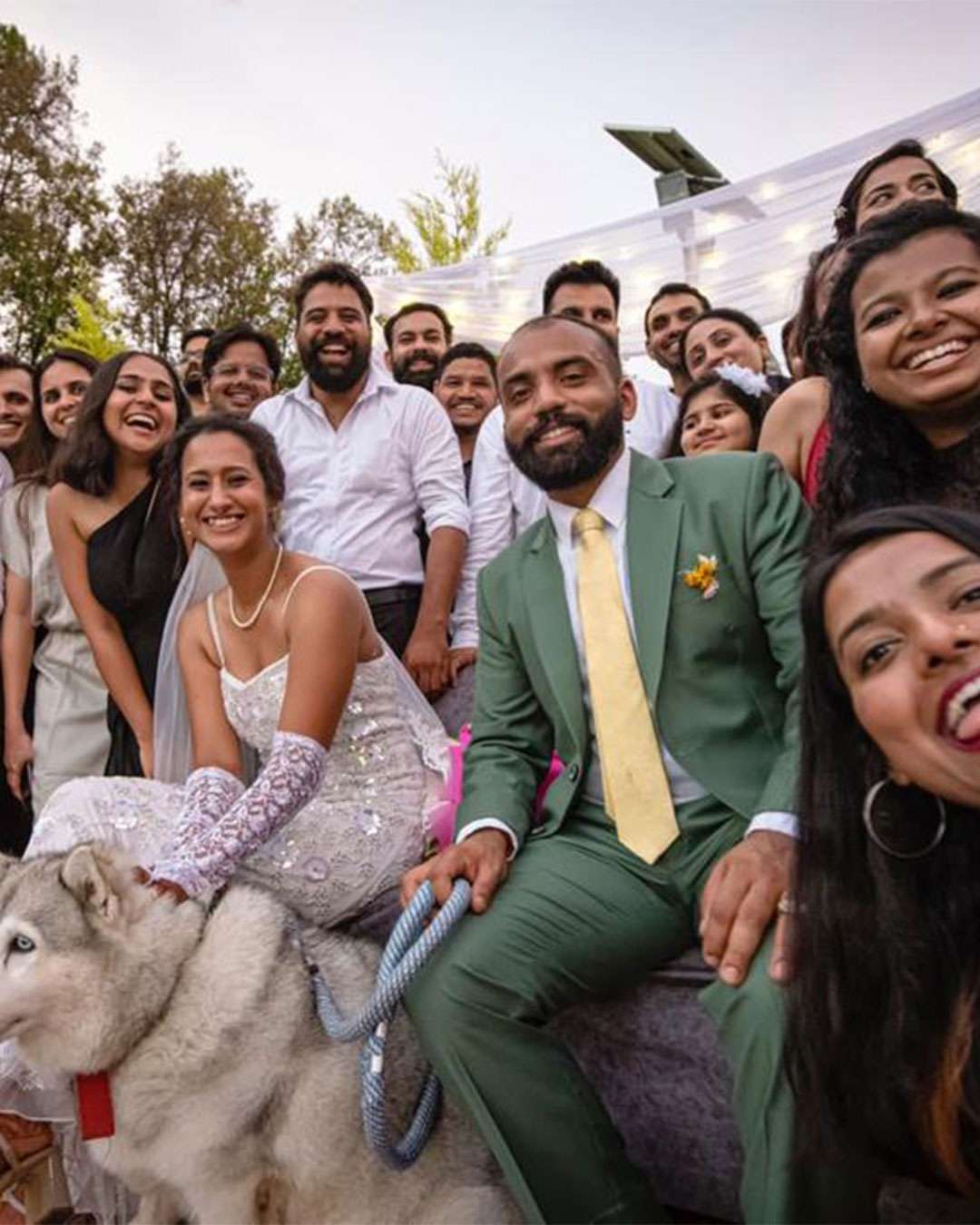
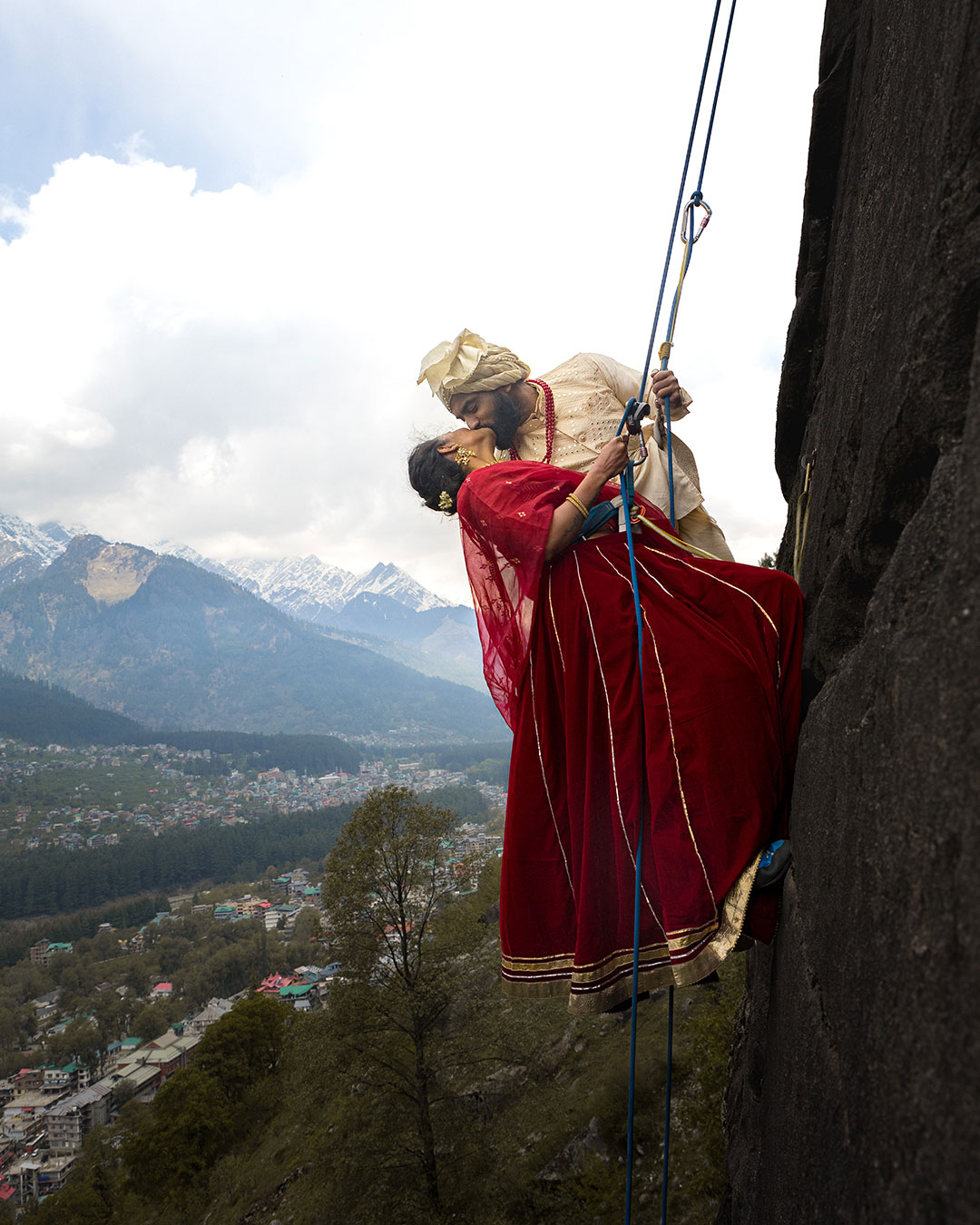
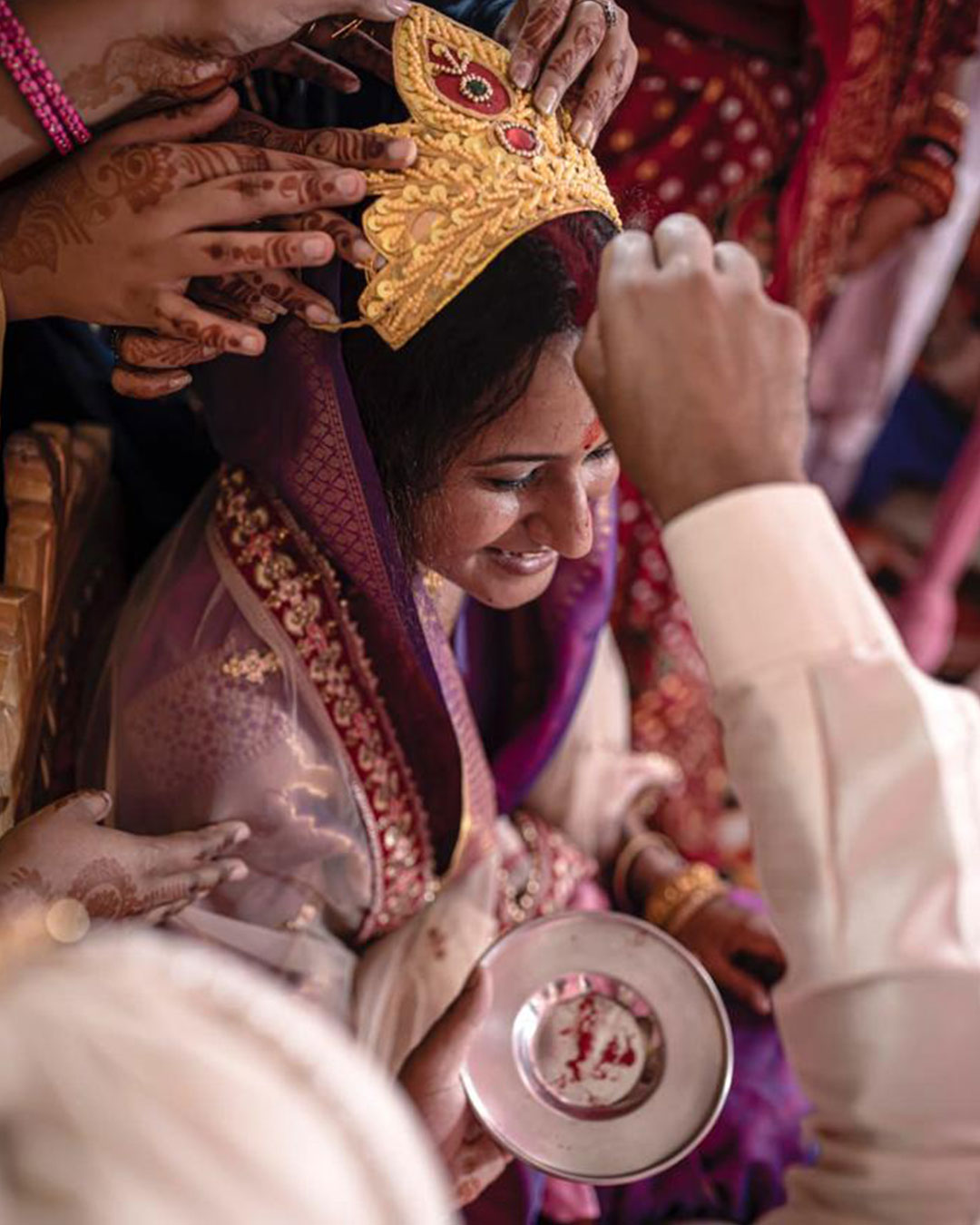
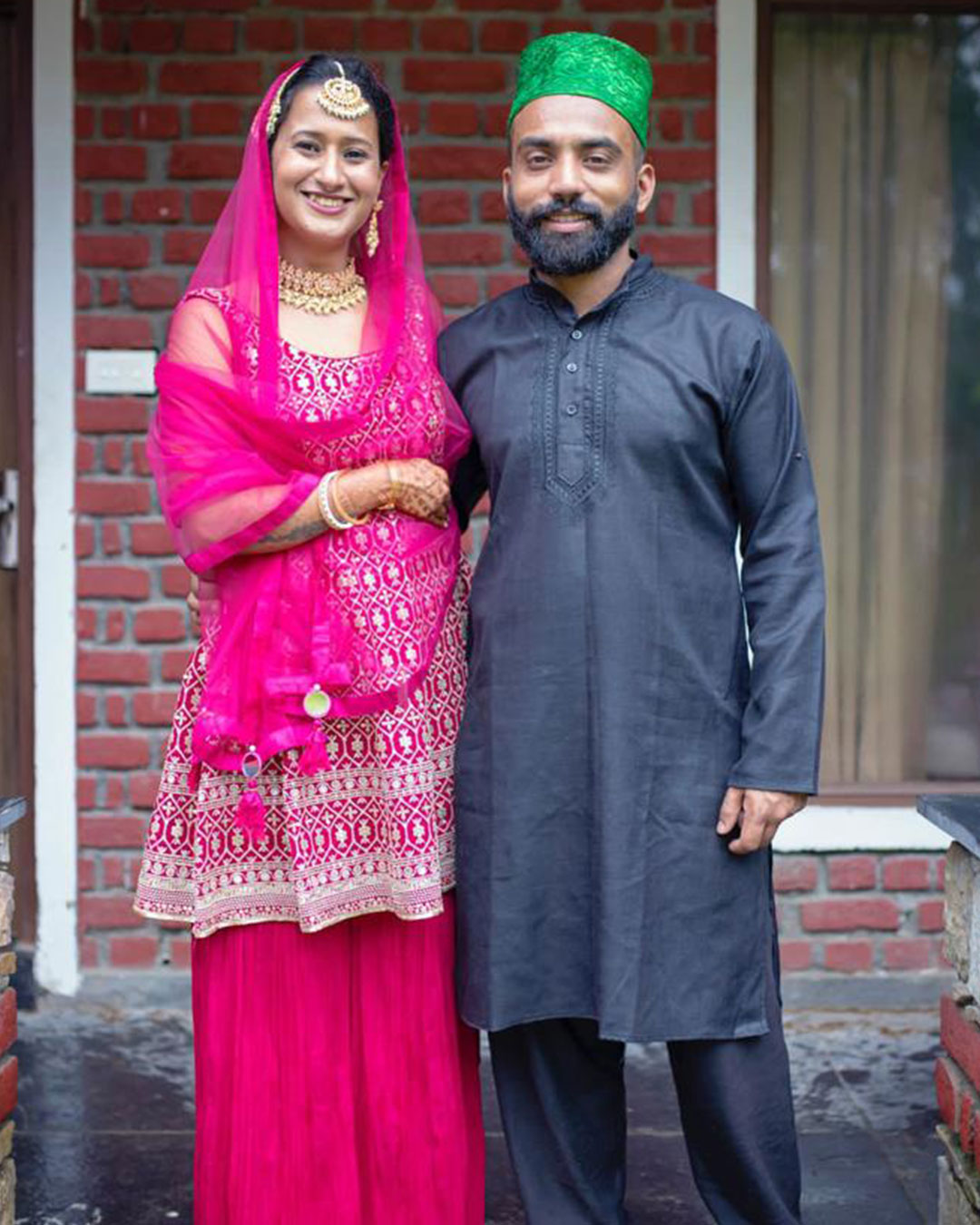

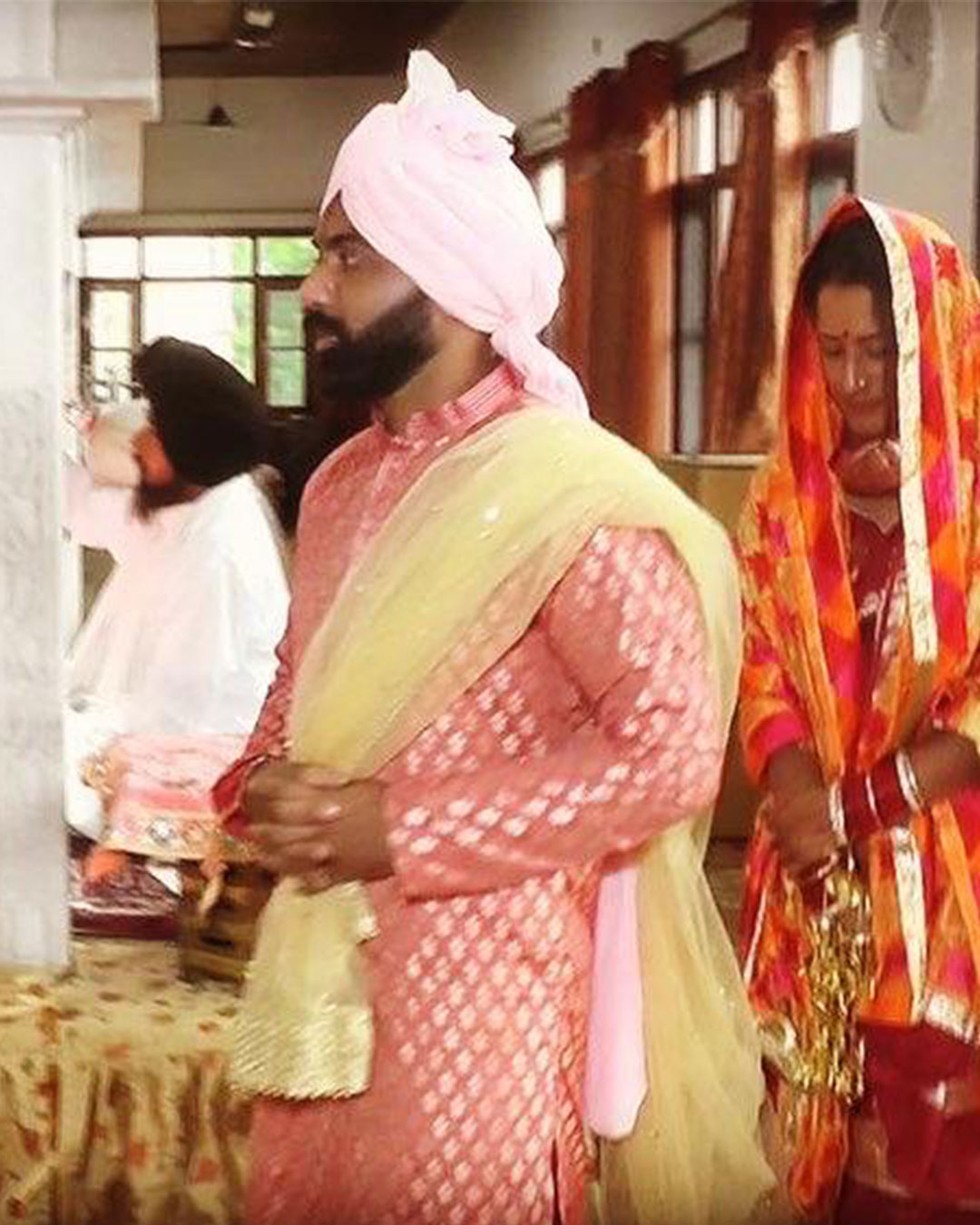
For Megha, who got married on her balcony in Goa, finding a priest willing to marry a Hindu and a Muslim was quite the struggle.
Support from her lawyer also played a crucial role. “Our lawyer told me how to get things in place, how to get our papers right and he ensured our protection, given the scenario right now. We were financially independent and financed our wedding on our own,” she explained.
mahvish &Shiva
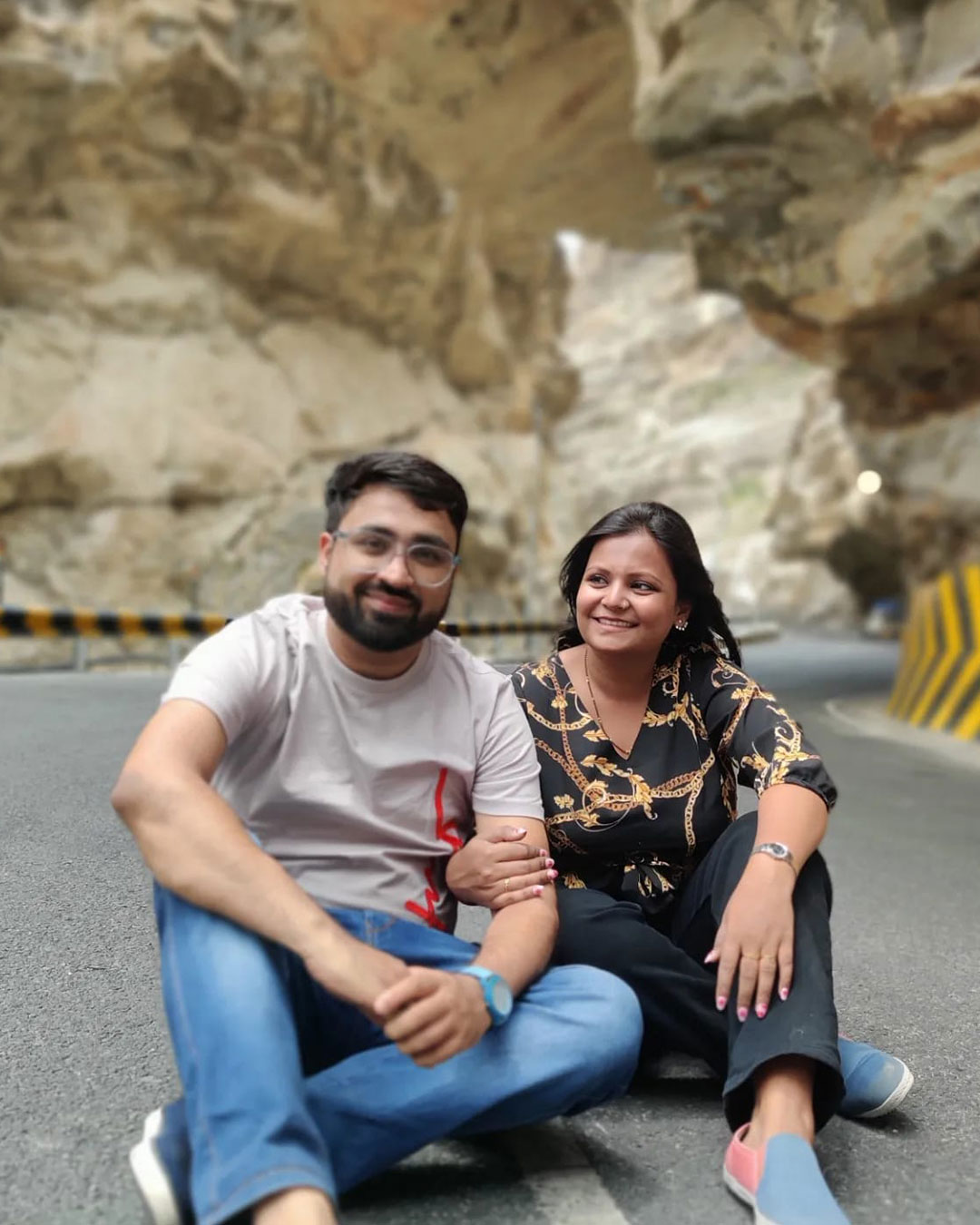
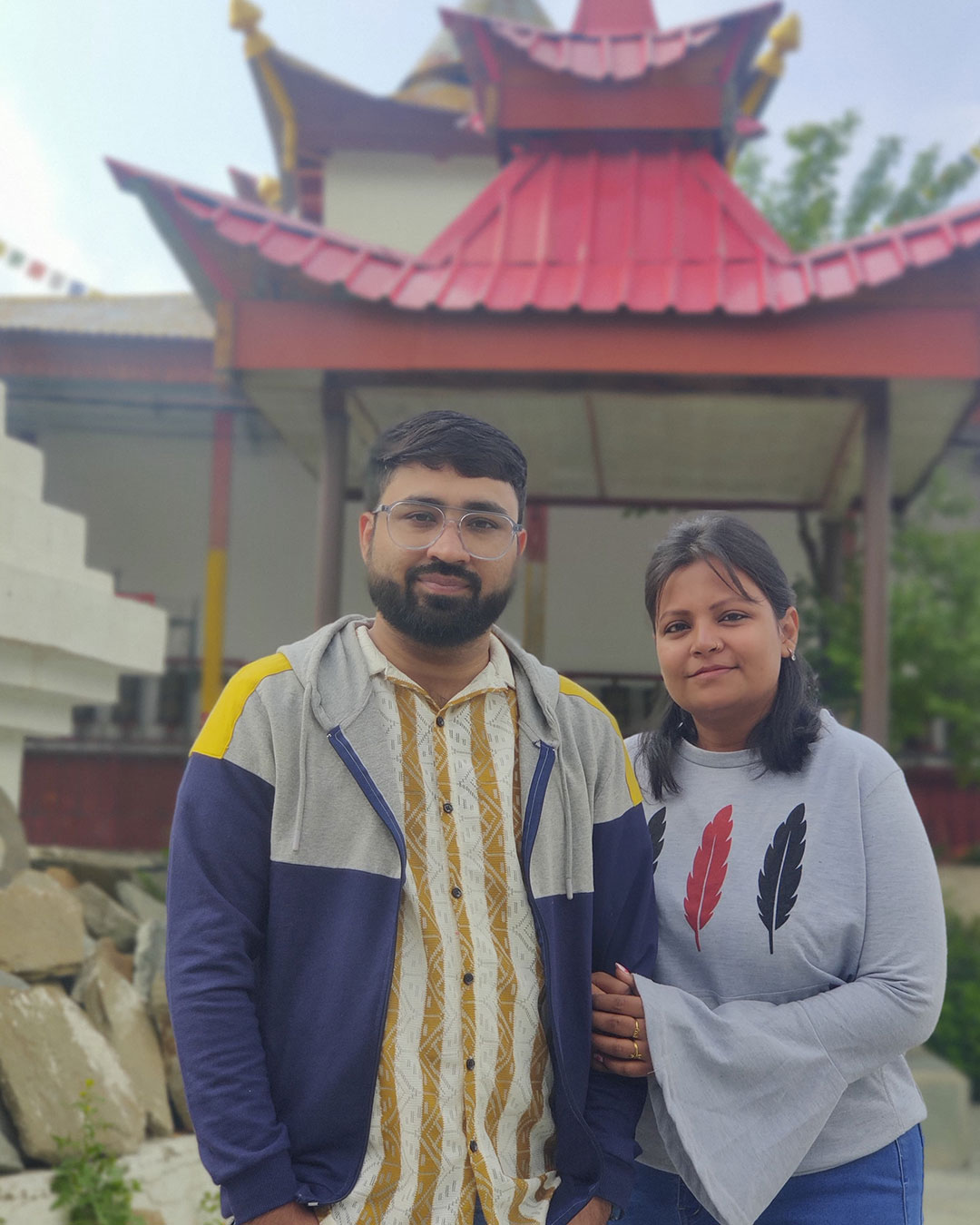
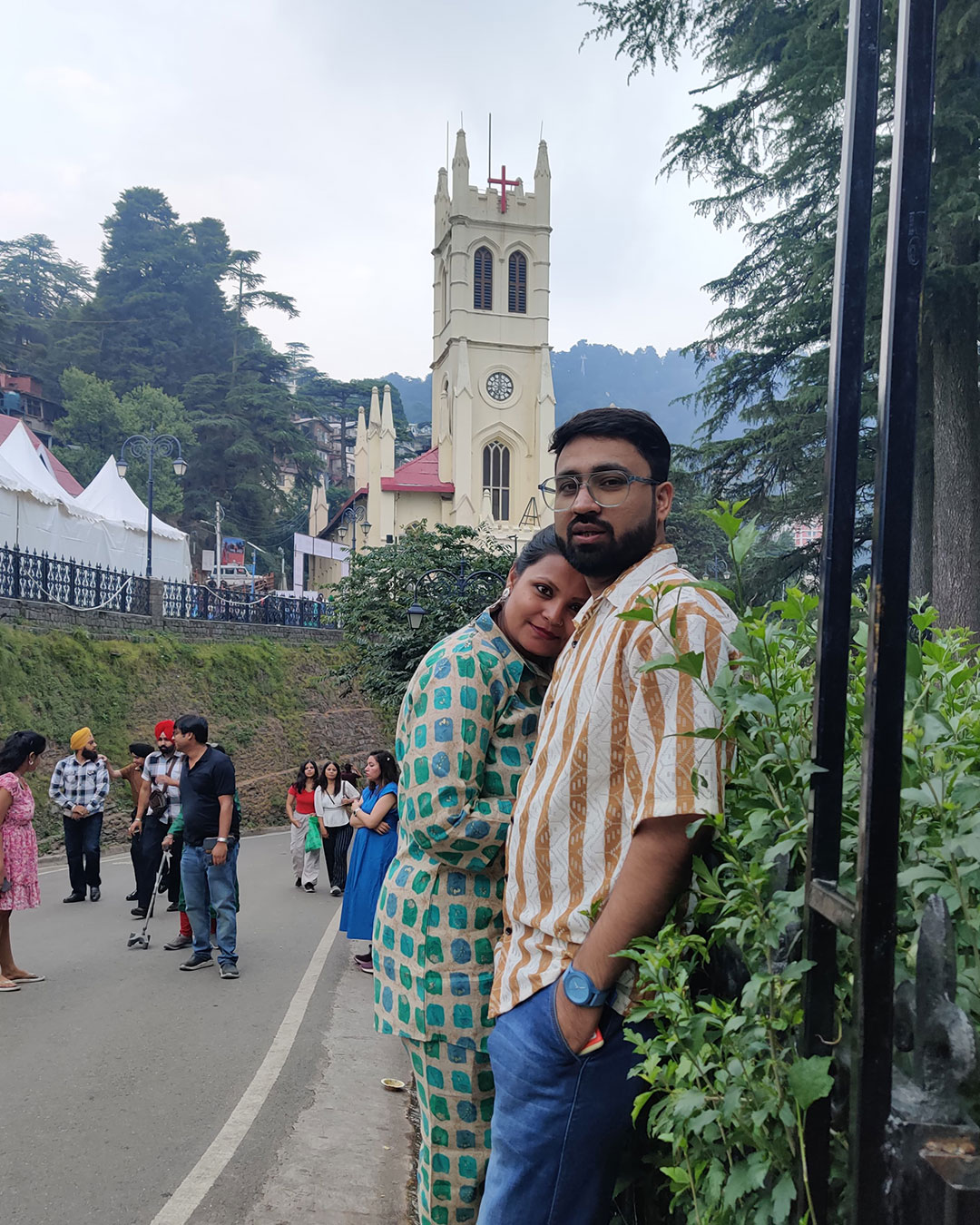
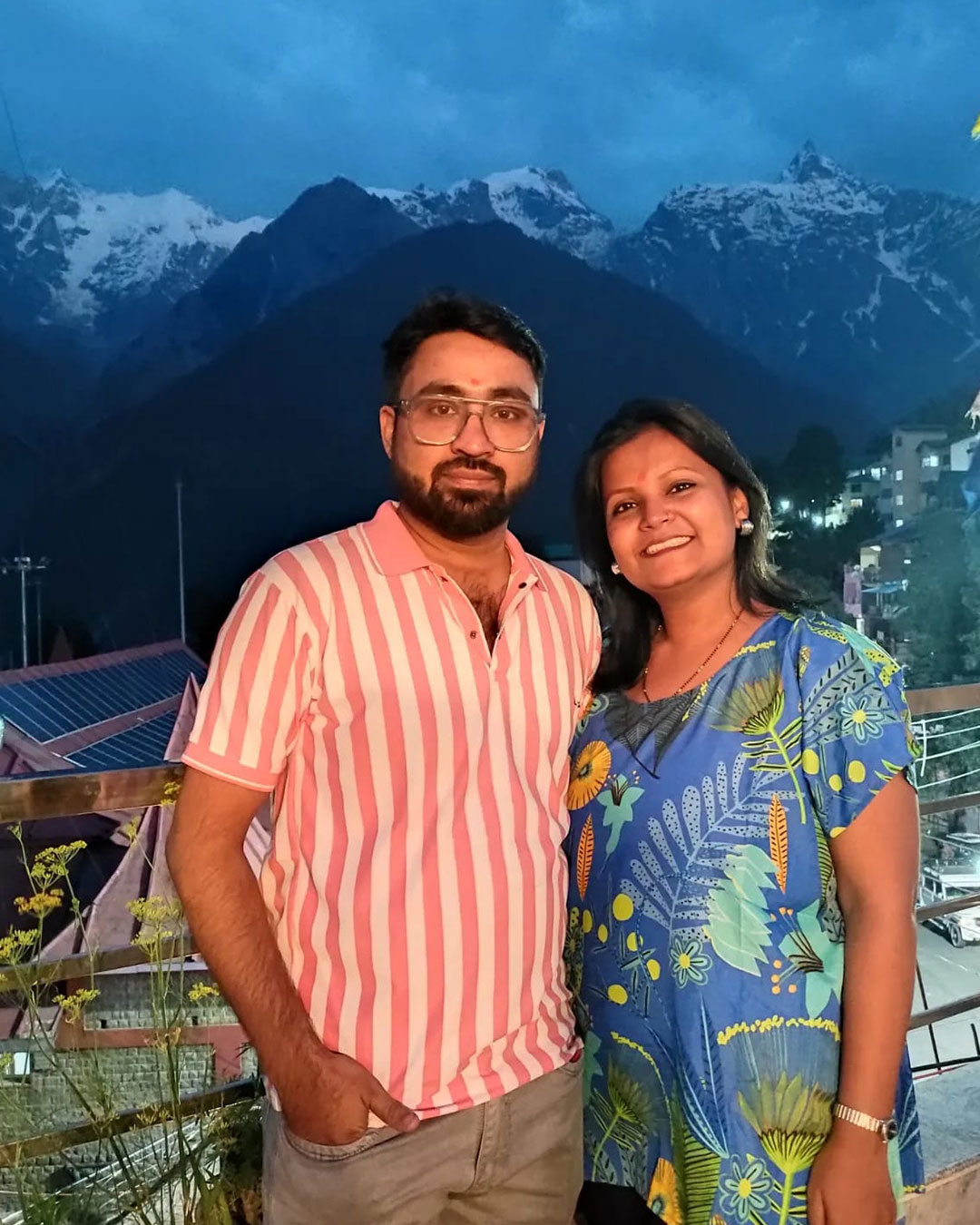
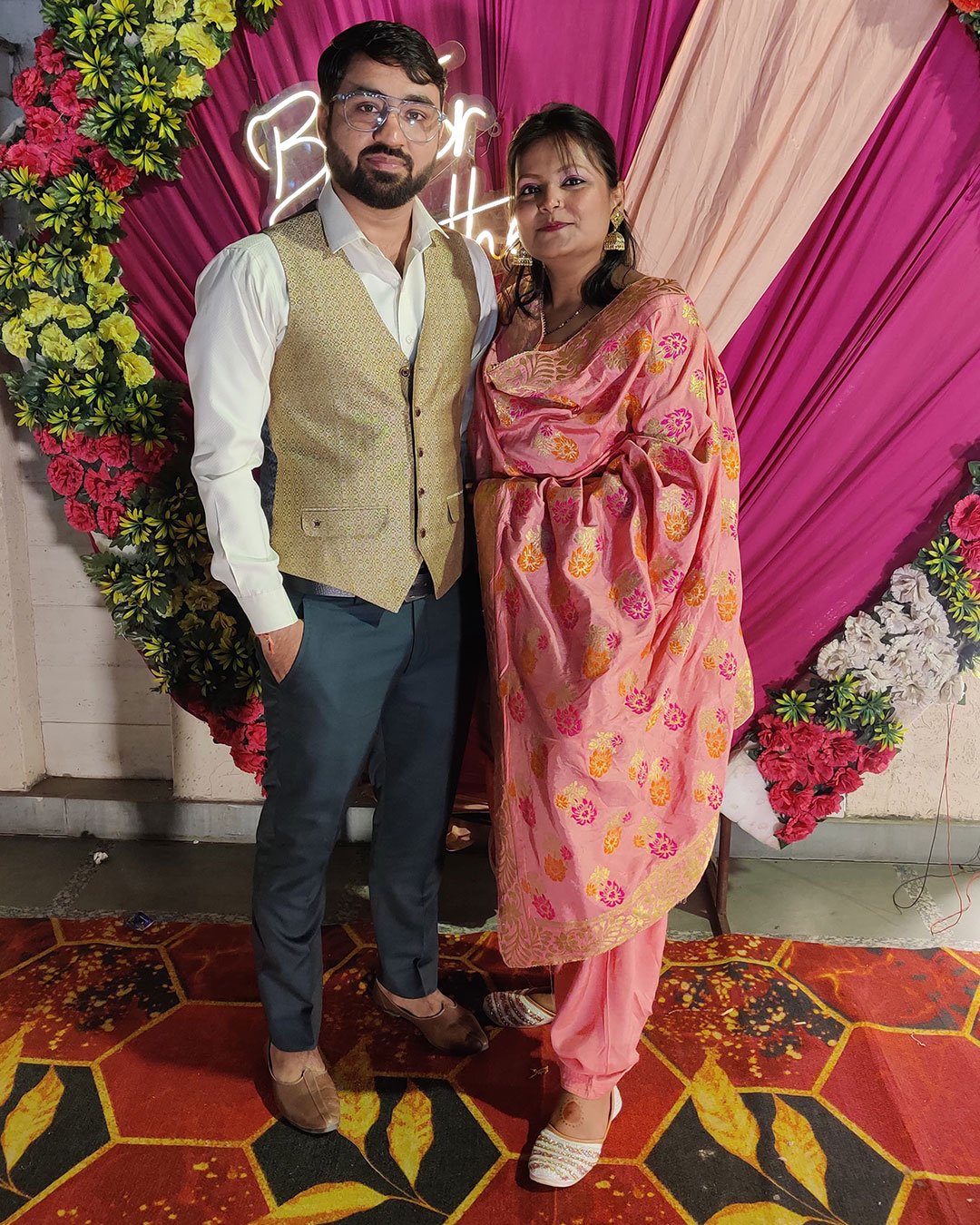
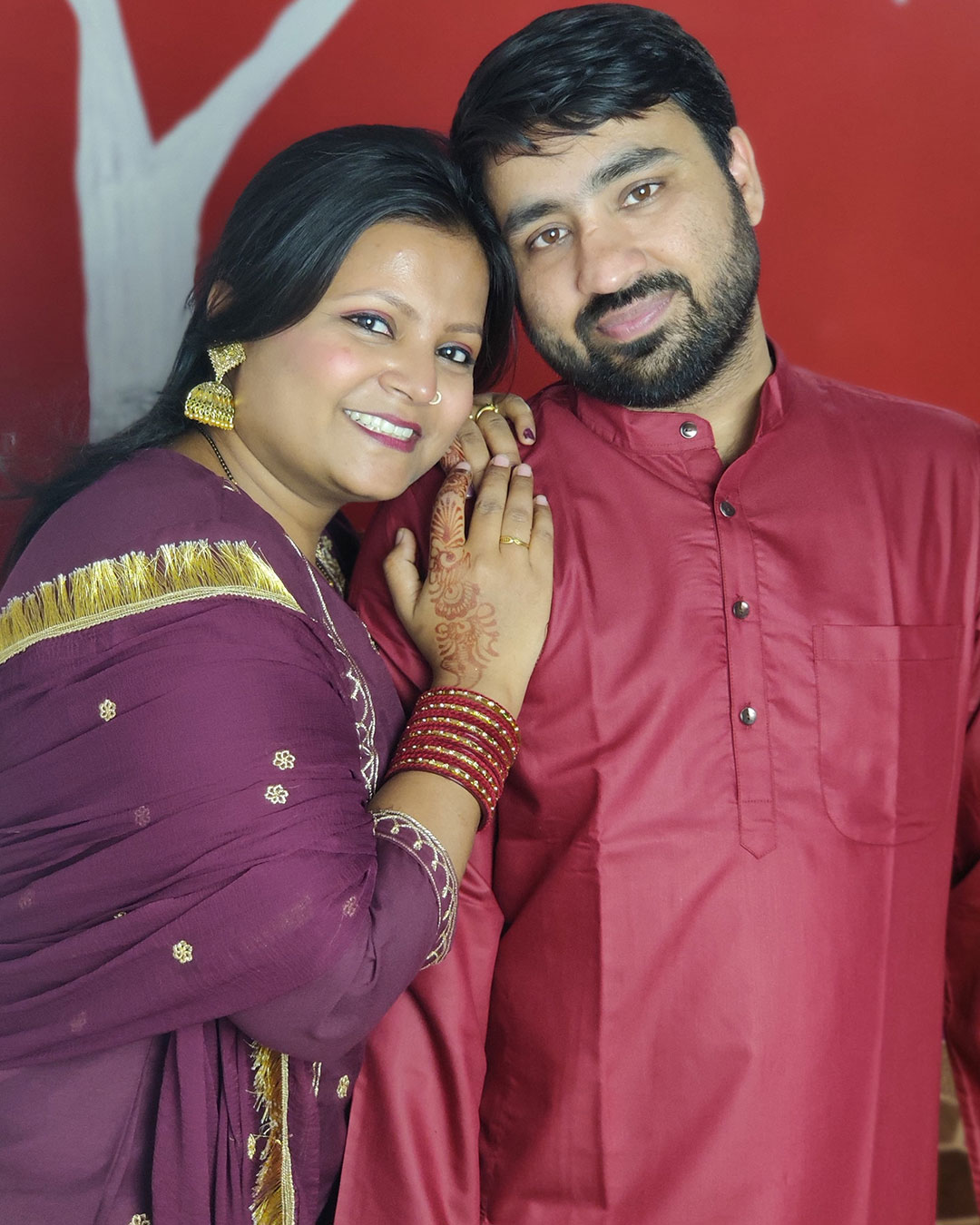
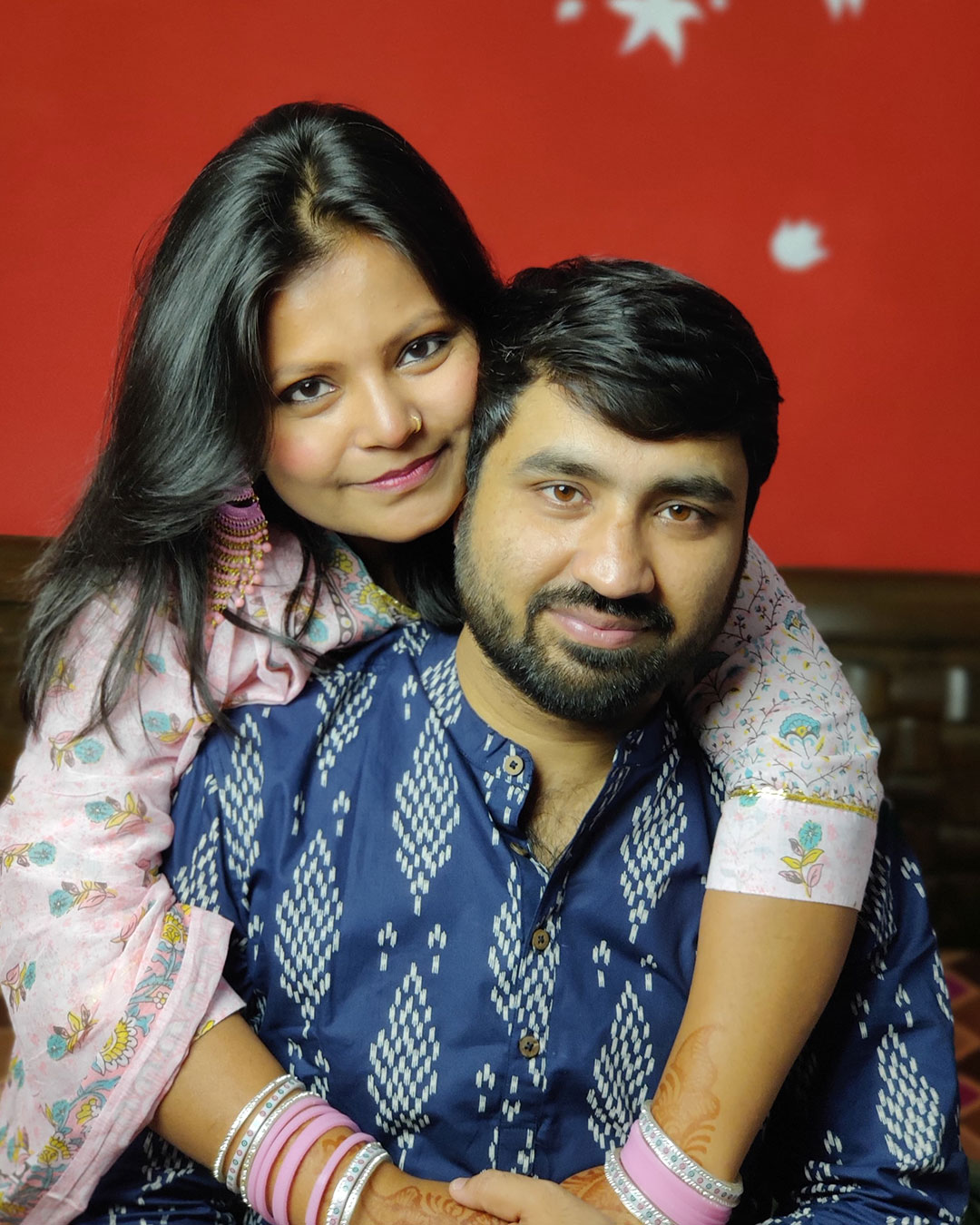
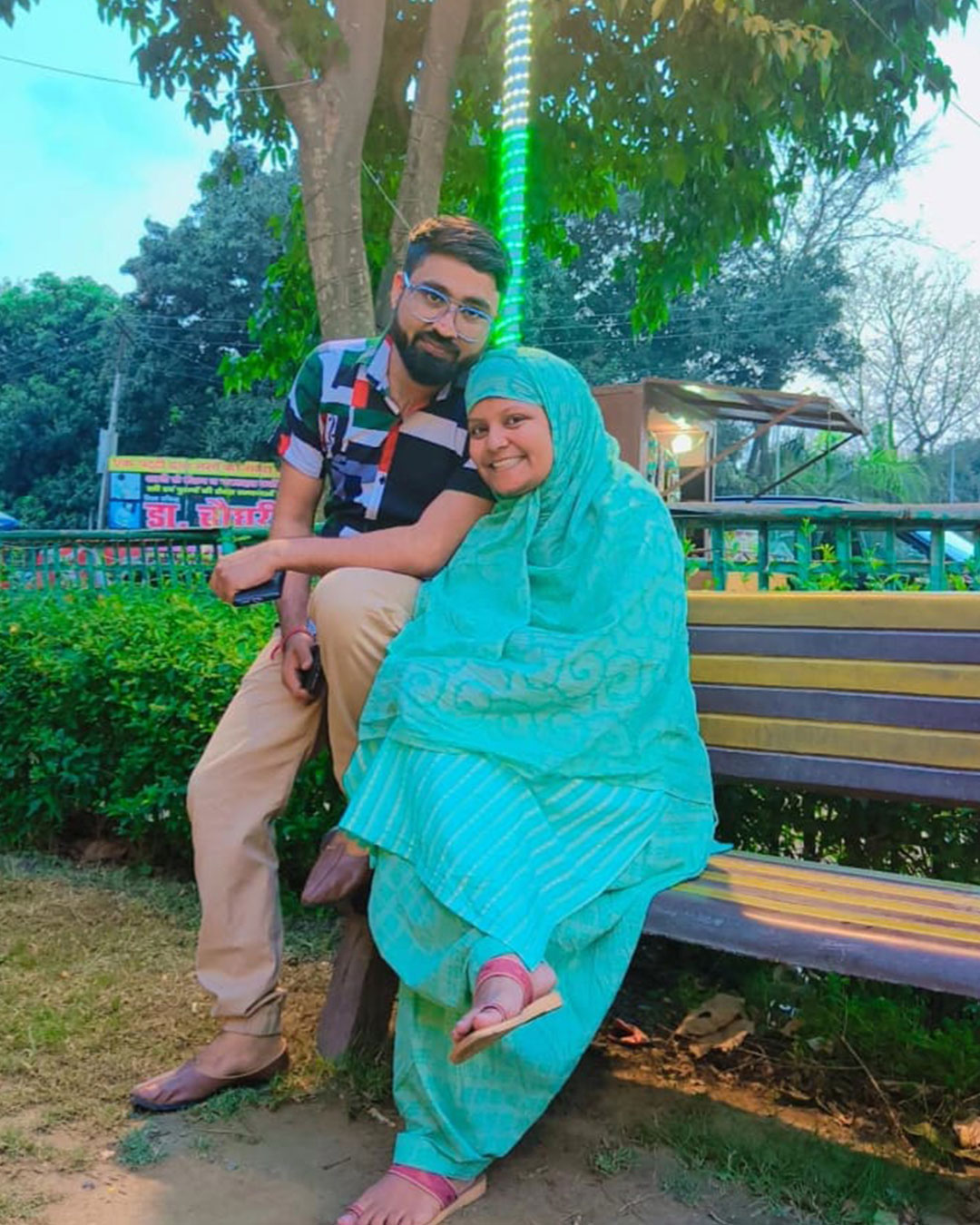
For high school sweethearts Mahvish Mahvish Razvi and Shiva Tiwari, the wedding was kept a secret. Despite dating for four years, they tried their best to convince their families to accept their relationship, but in vain.
In 2020, they decided to get married secretly and did not tell anyone for about a year. Their court marriage was a discreet affair and apart from the witnesses, no one else was aware of it. “That was one of the scariest experiences when we went to the court hiding our faces,” recalled Mahvish.
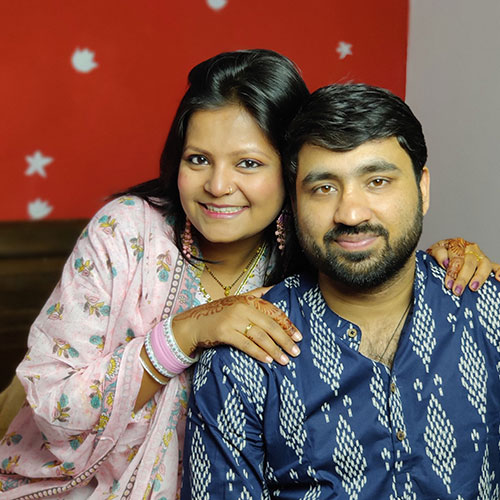
Mahvish Razvi
After their families eventually found out, the couple found themselves without the support of their families. “The way the situation is developing in India, the hatred towards the other religions is increasing. Both the families are still not talking to us. We cannot expect emotional-financial support from anyone,” Mahvish said.
Finding Harmony in Marital Lives
For most interfaith couples, living together becomes a blend of cultures, festivals, and religious lives.
Megha said, “We celebrate Eid and Diwali and all other festivals. I have Hindu gods in the same puja place with our Quran Sharif.”
Respect for each others’ religions is key, said Moumita. She added, “Zayyan, my partner partakes in all the festivals enthusiastically. This year, we celebrated Eid with his family. My mom, who has been devoutly Hindu all her life, dealt with it very respectfully. She joined us for the special Eid ka namaaz too.”
Meghna had a similar experience, of celebrating festivals of both cultures equally. “During Ramzan, I fasted with him (Aamir, her partner), and celebrated Eid with his family. On Diwali and Tamil New Year, my family gave him gifts,” she said.

Advice for Couples Navigating a Similar Situation
Most couples acknowledge that sometimes differences can get in the way, and patience is essential in such circumstances.
Moumita highlighted the need to constantly try to re-condition parents to undo years of social conditioning.
Mahvish emphasised that before taking the plunge, interfaith couples must have some uncomfortable, but much-needed discussions. “Questions like which religion the children will follow, which religion you will follow, how will the day start, will the name change or not, etc., may seem like bitter conversations in the beginning, but they will take your relationship forward,” she explained.
Asif Iqbal added, “They must inform their respective families about their decision, only if there is no threat of forced marriage or violence. If informing families is impossible, then they must strategise their marital union after achieving their financial independence.”
Points to Note About the Special Marriage Act
Experts say that the law can be perceived as discriminatory, against interfaith couples.
Asif and other interfaith couples highlighted how belonging to the same religion can easily register their marriage a few days after their religious marriage, while interfaith couples lack that privilege. Under other personal laws, couples do not need to give a notice of marriage. But this is different with interfaith couples. The Special Marriage Act (SMA) requires couples to publicly post 30-day notice. Asif says, "Now the time has come to change the Special Marriage Act because there are some rules in it that prevent people of two different religions from getting married."
Mishika Singh, Pro Bono Lawyer and founder of Neev Foundation, said, (while referring to the SMA), "It is not that the Special Marriage Act is only for interfaith couples. It is also for couples belonging to the same religion. The SMA is a secular way of getting married. The advantage is that through this you can easily get married legally and the disadvantage is that you have to give a notice of thirty days."